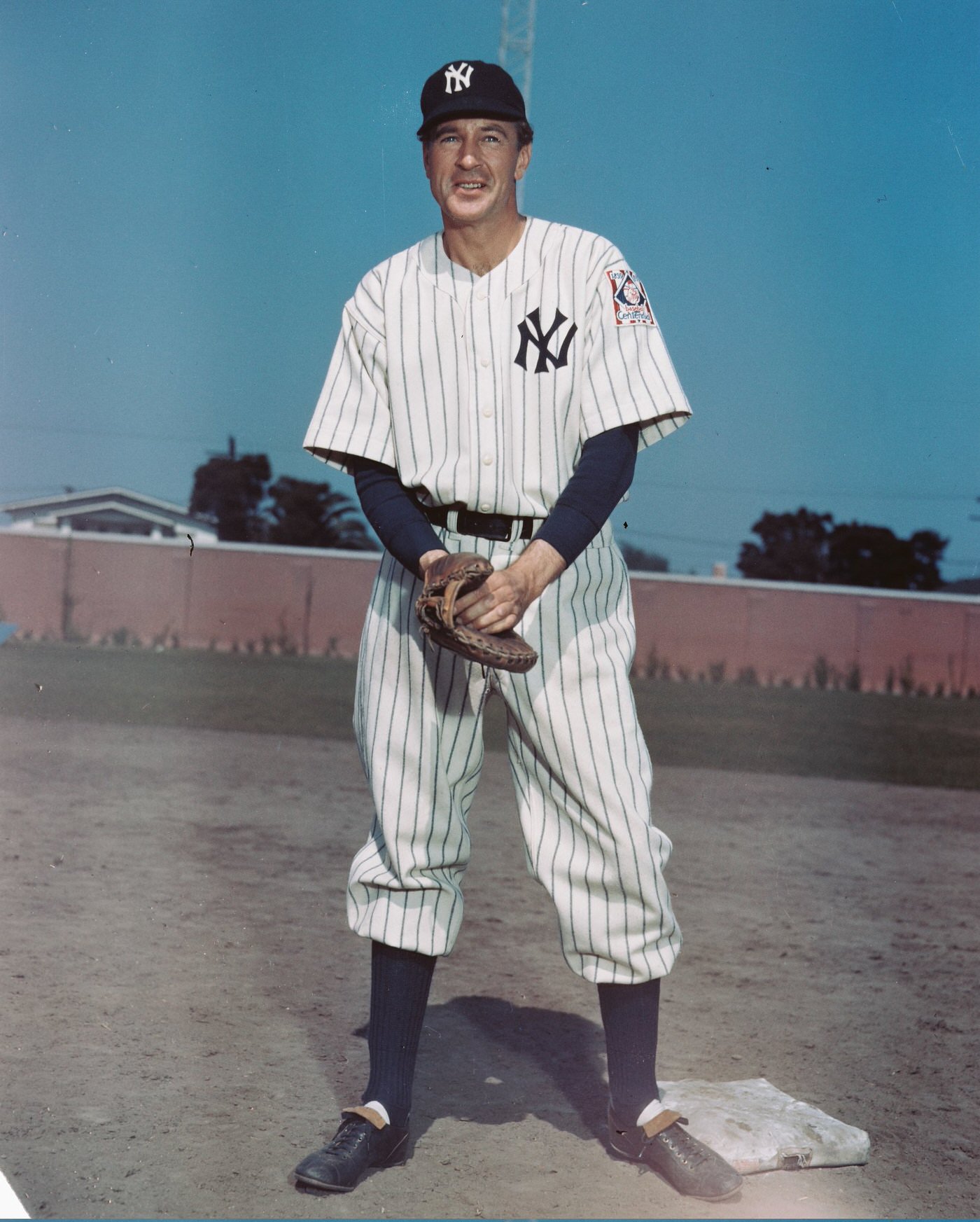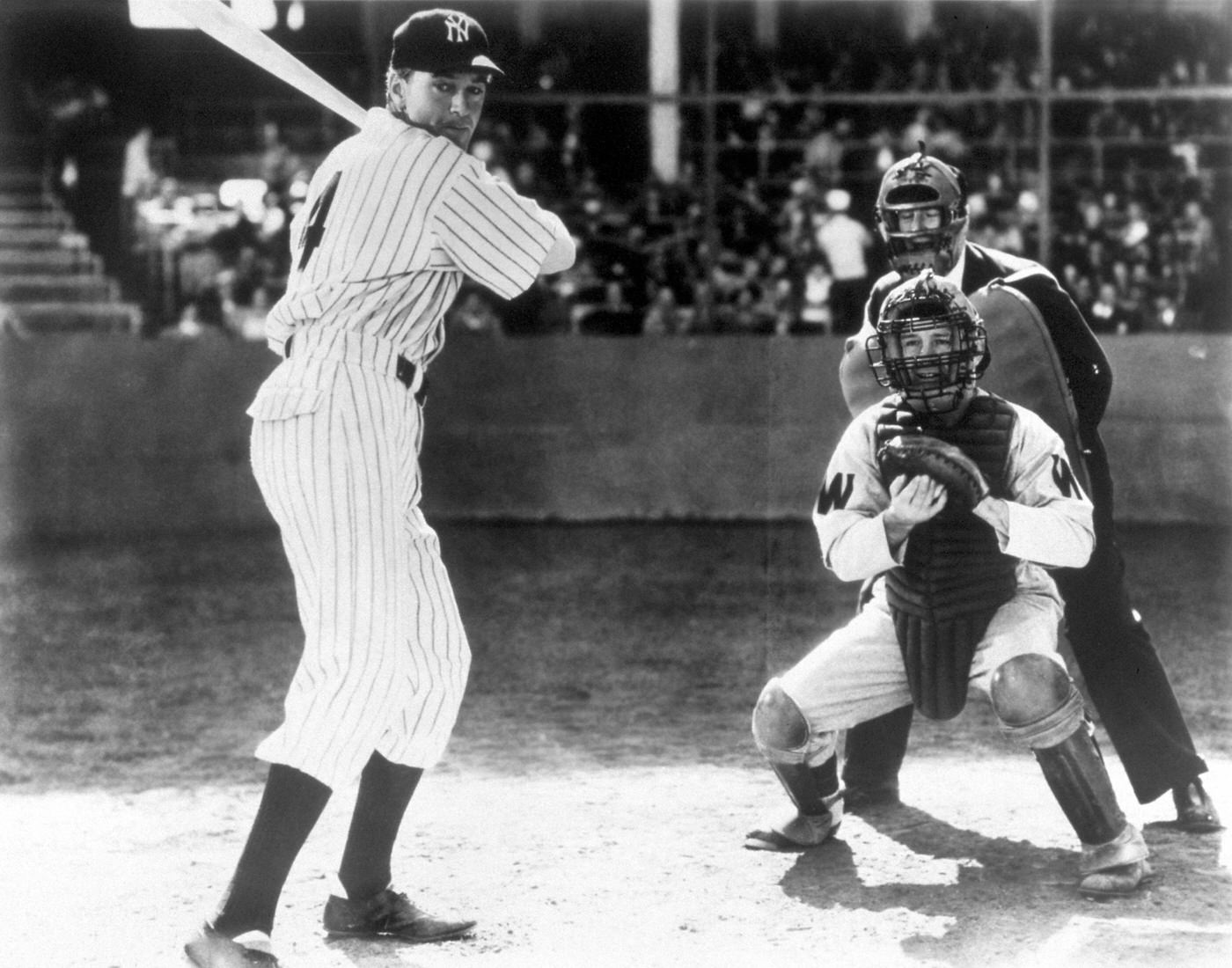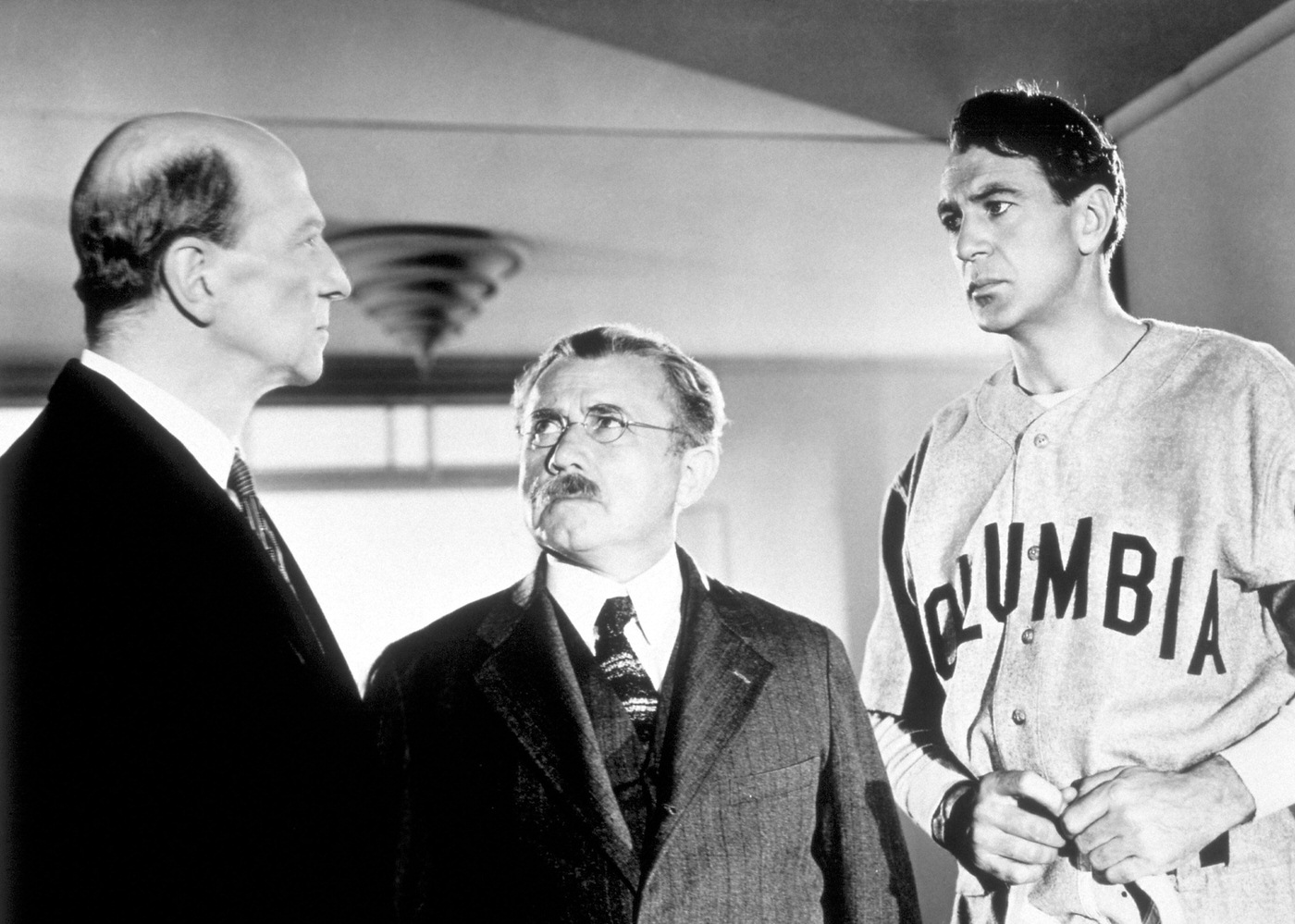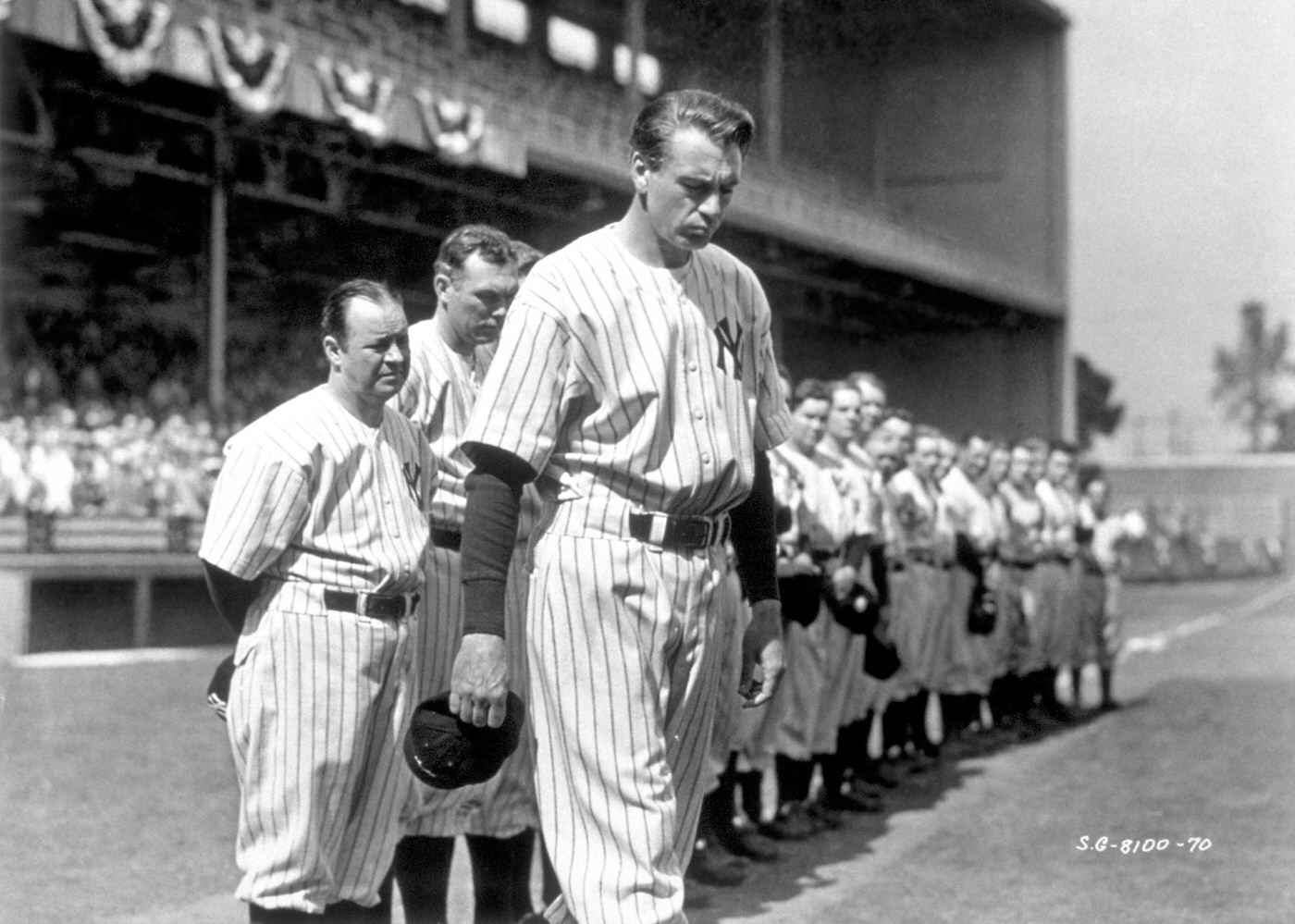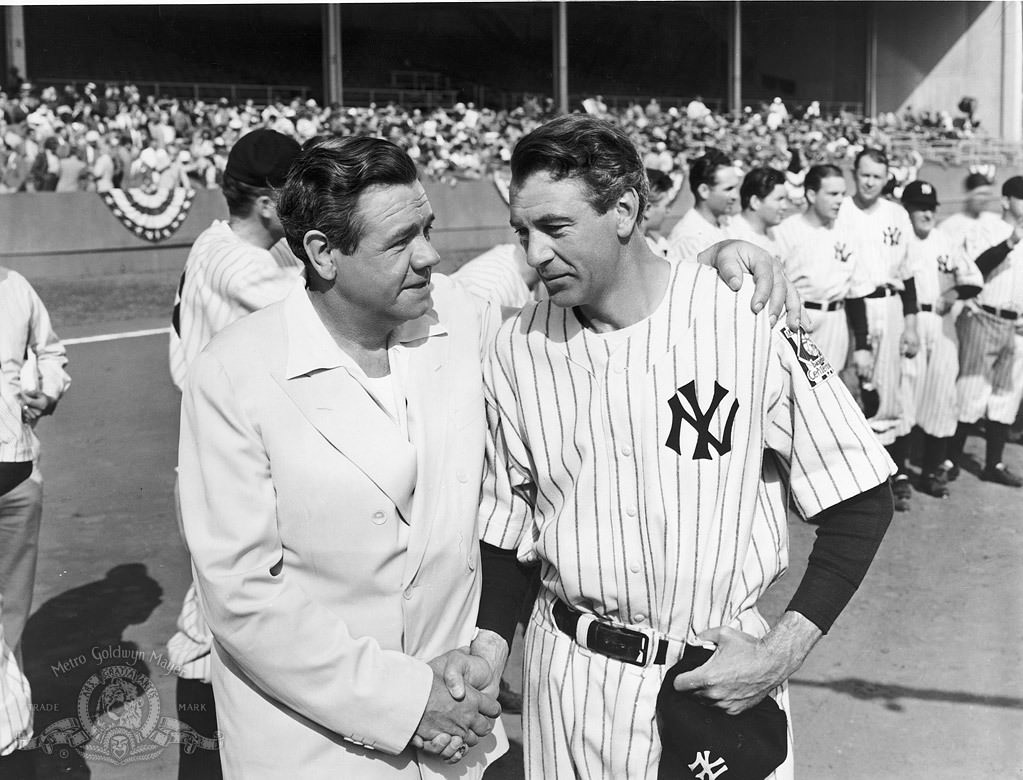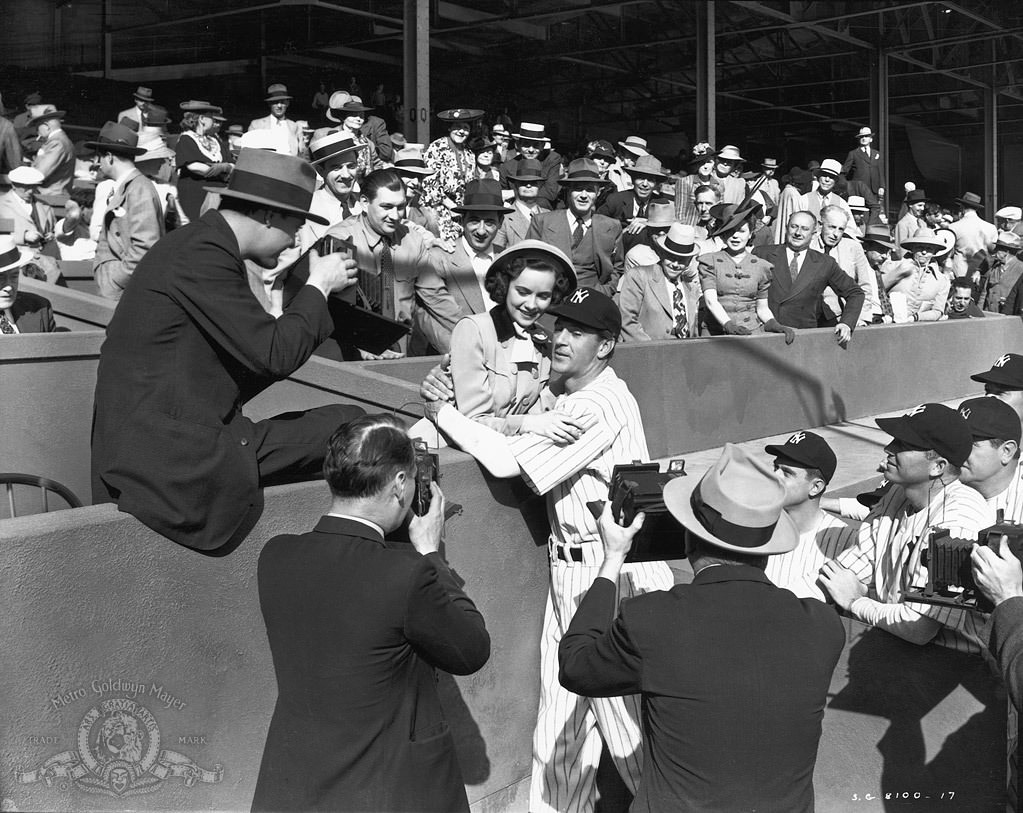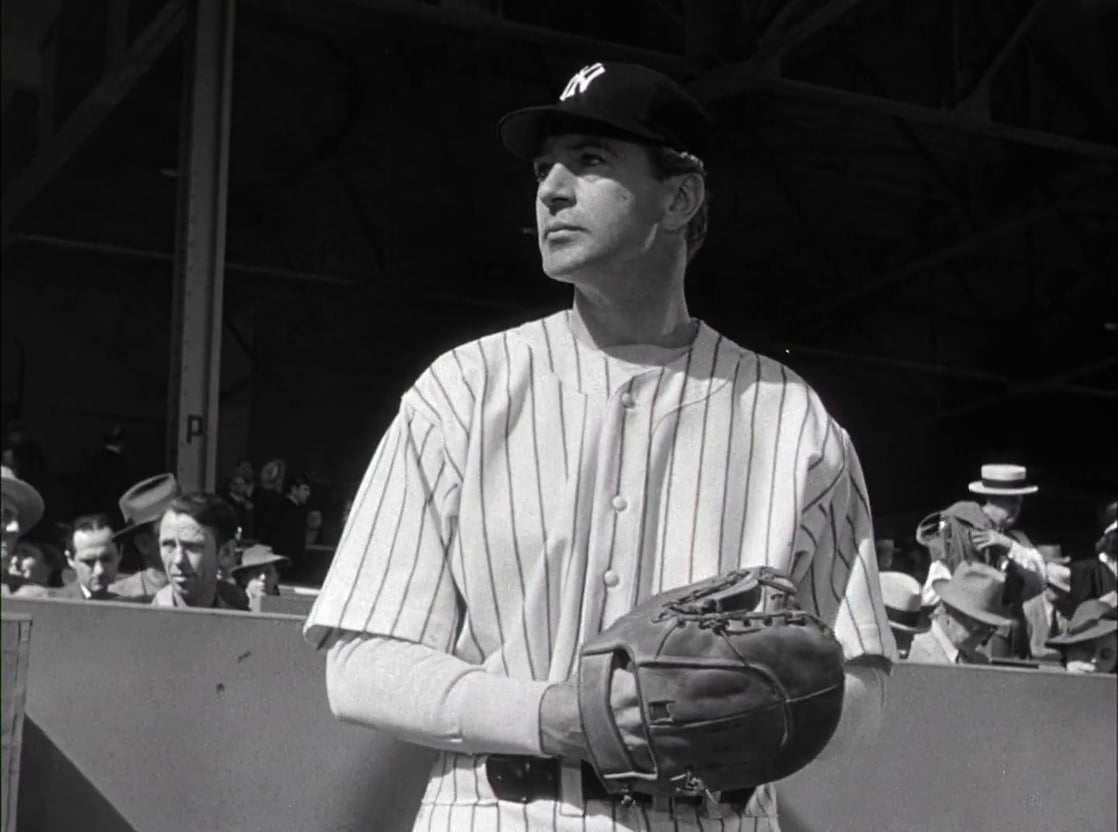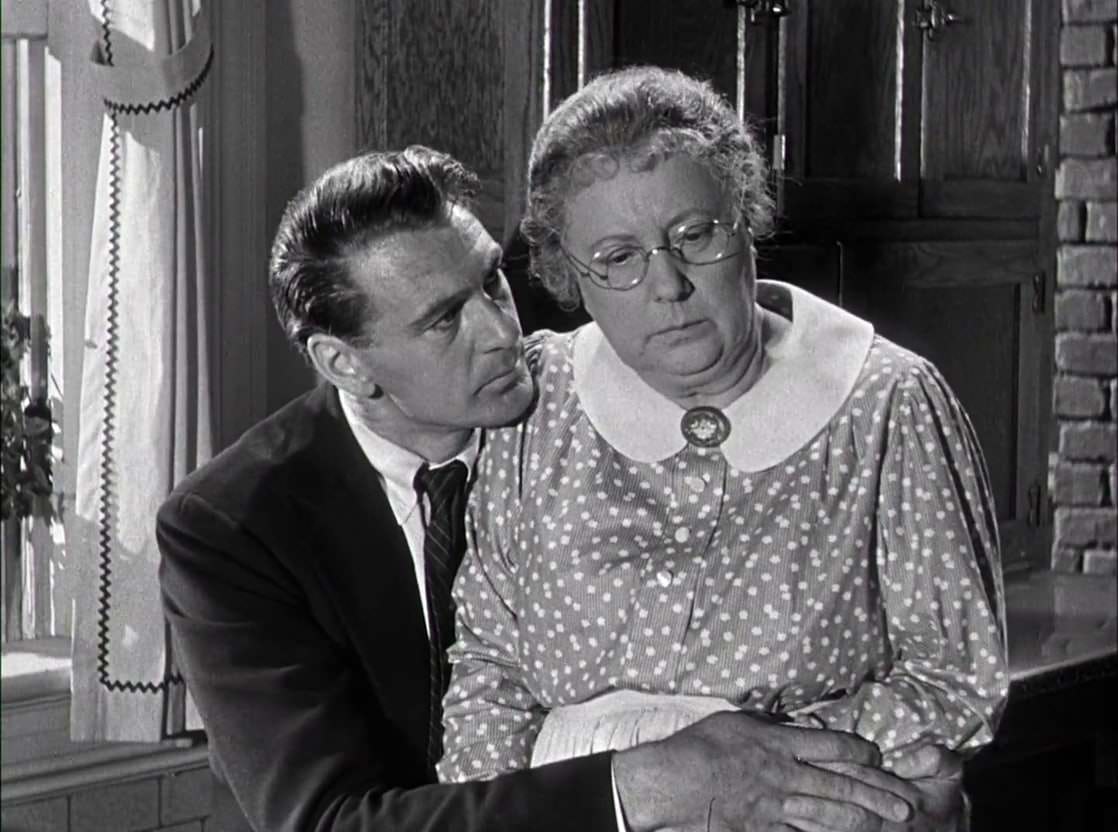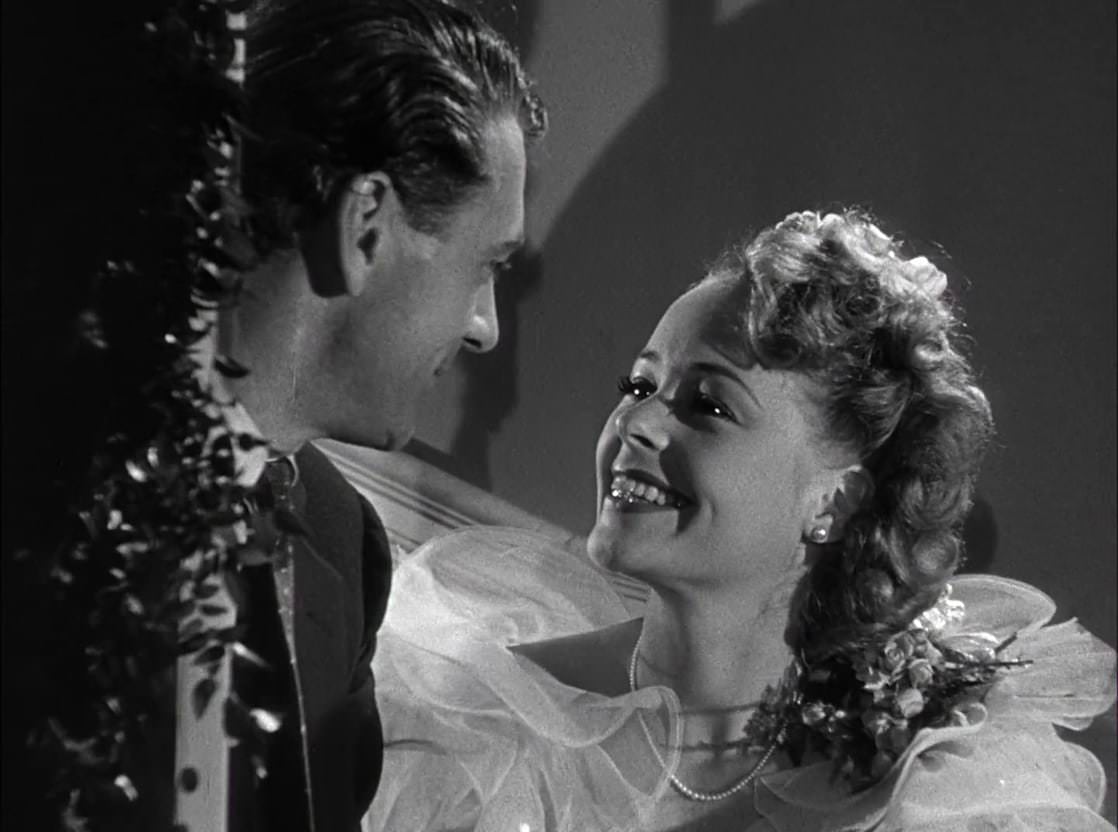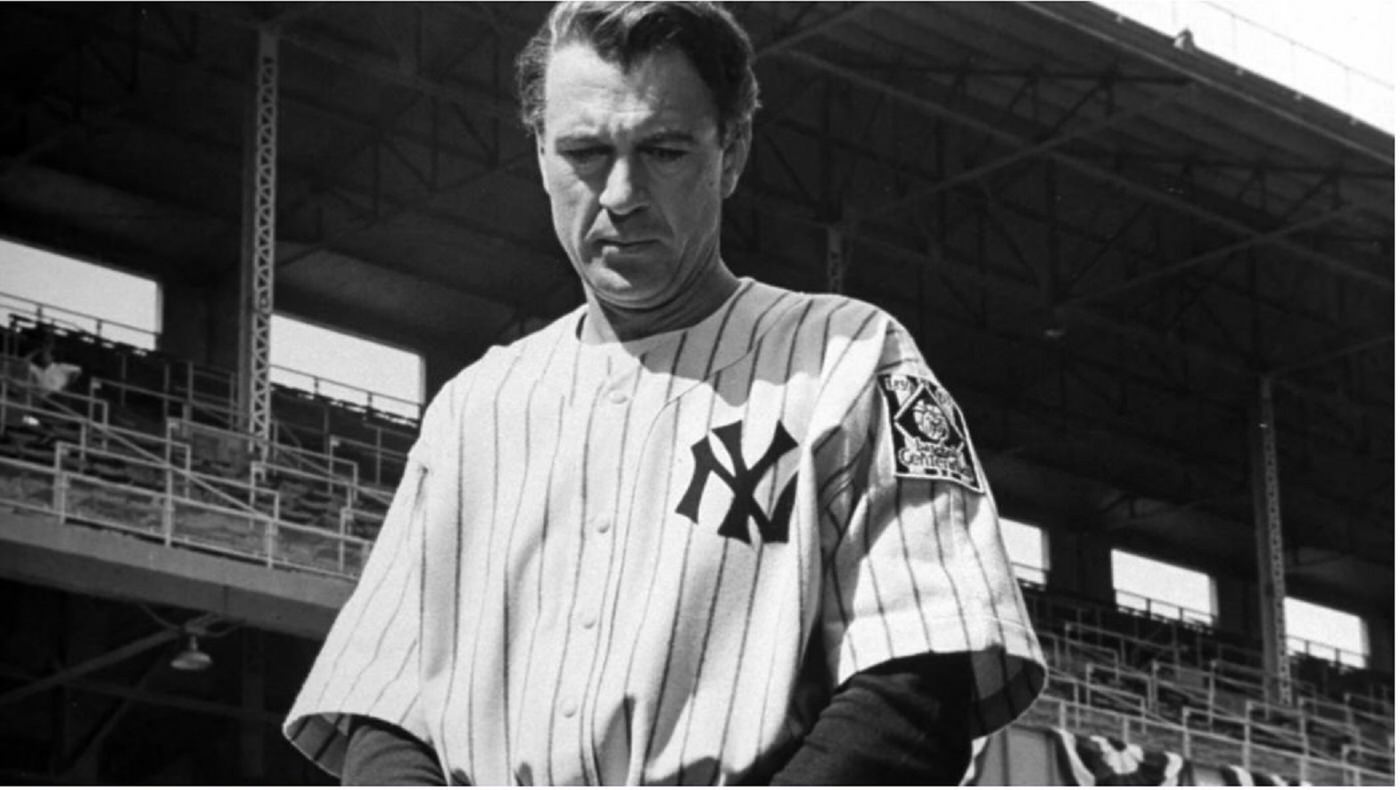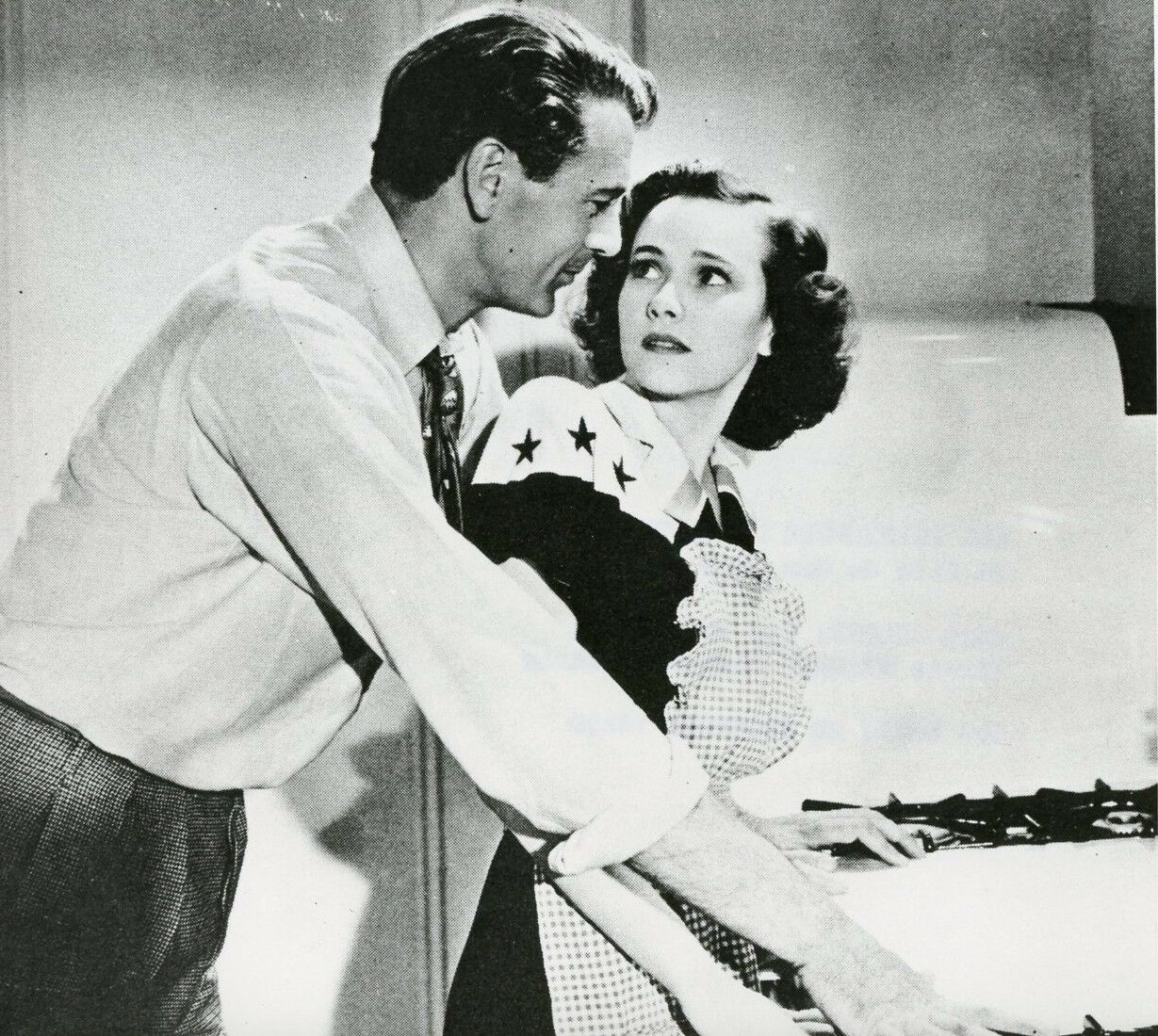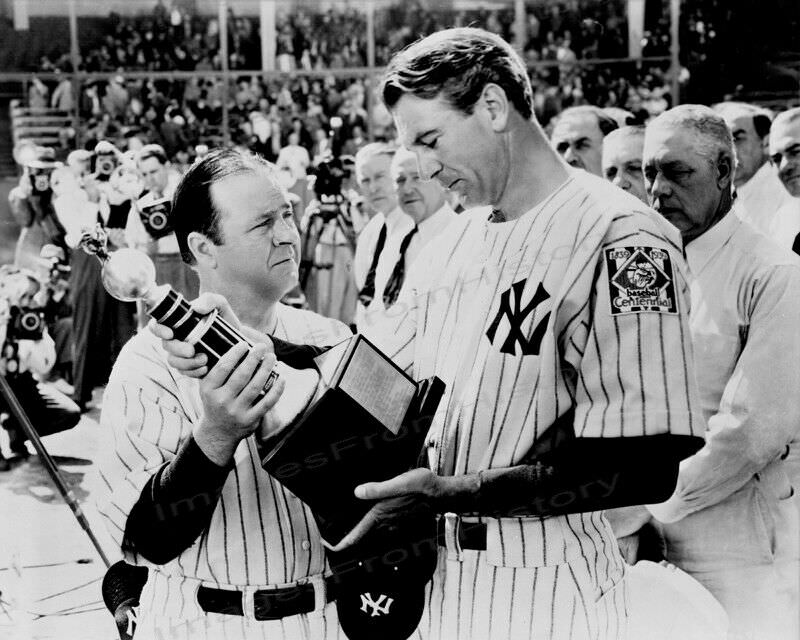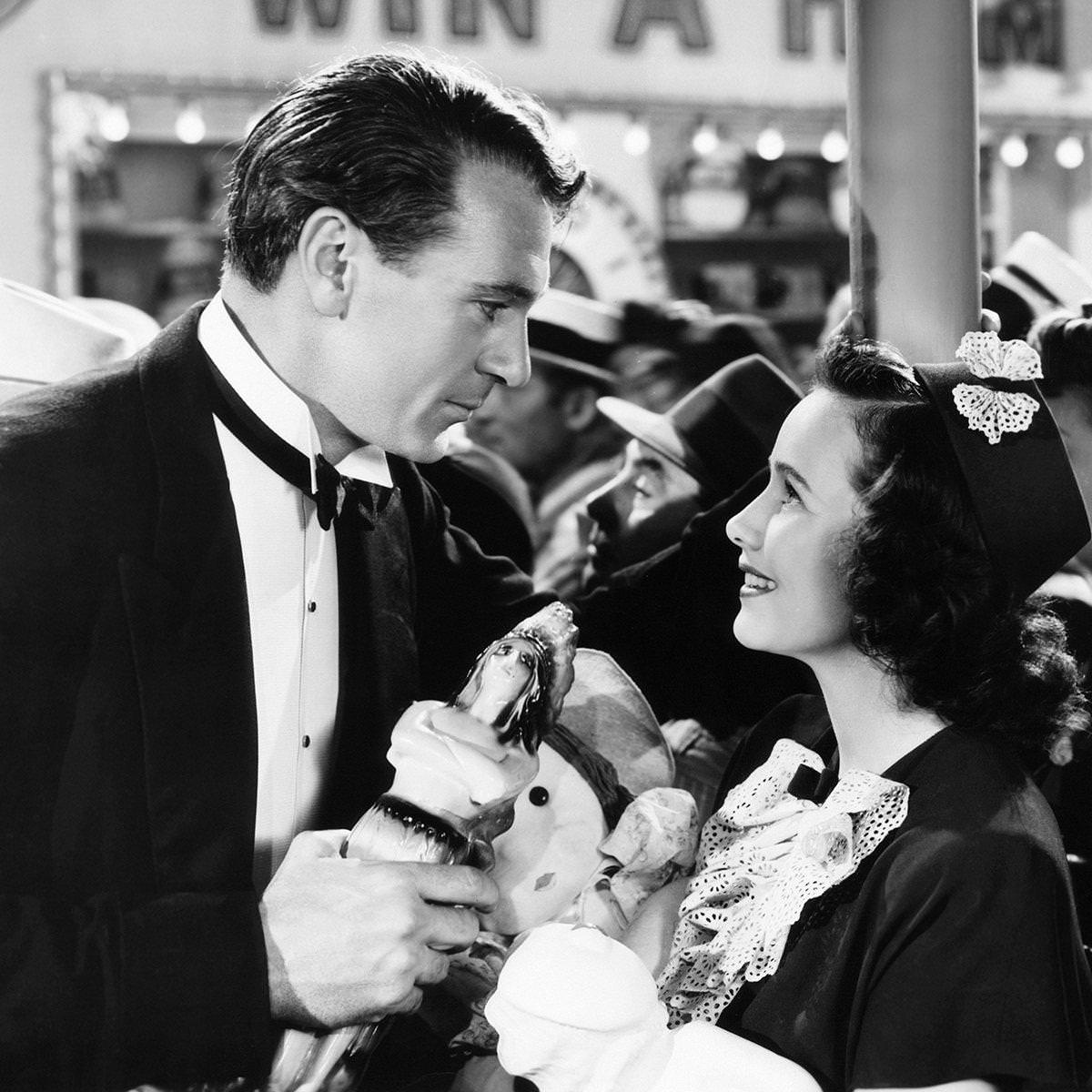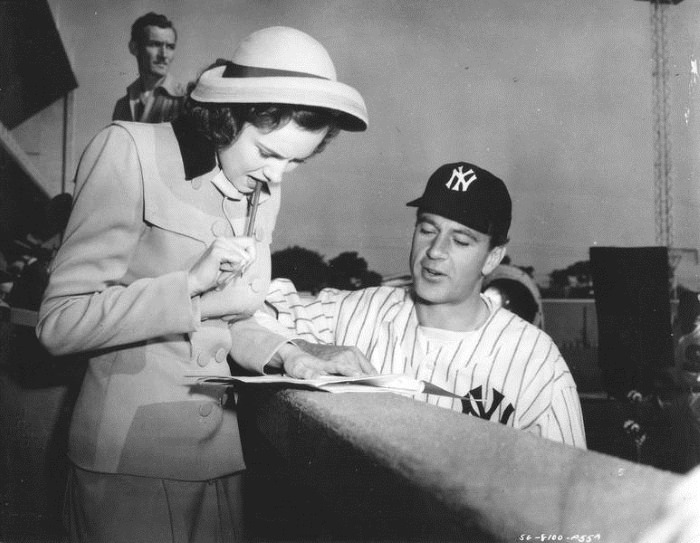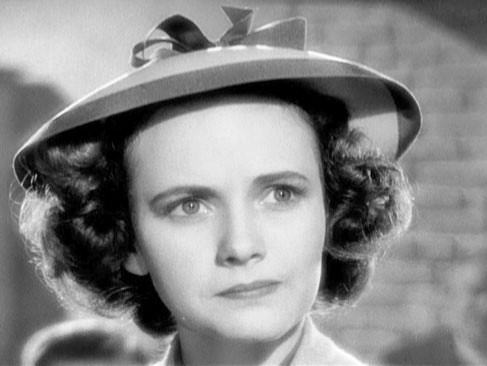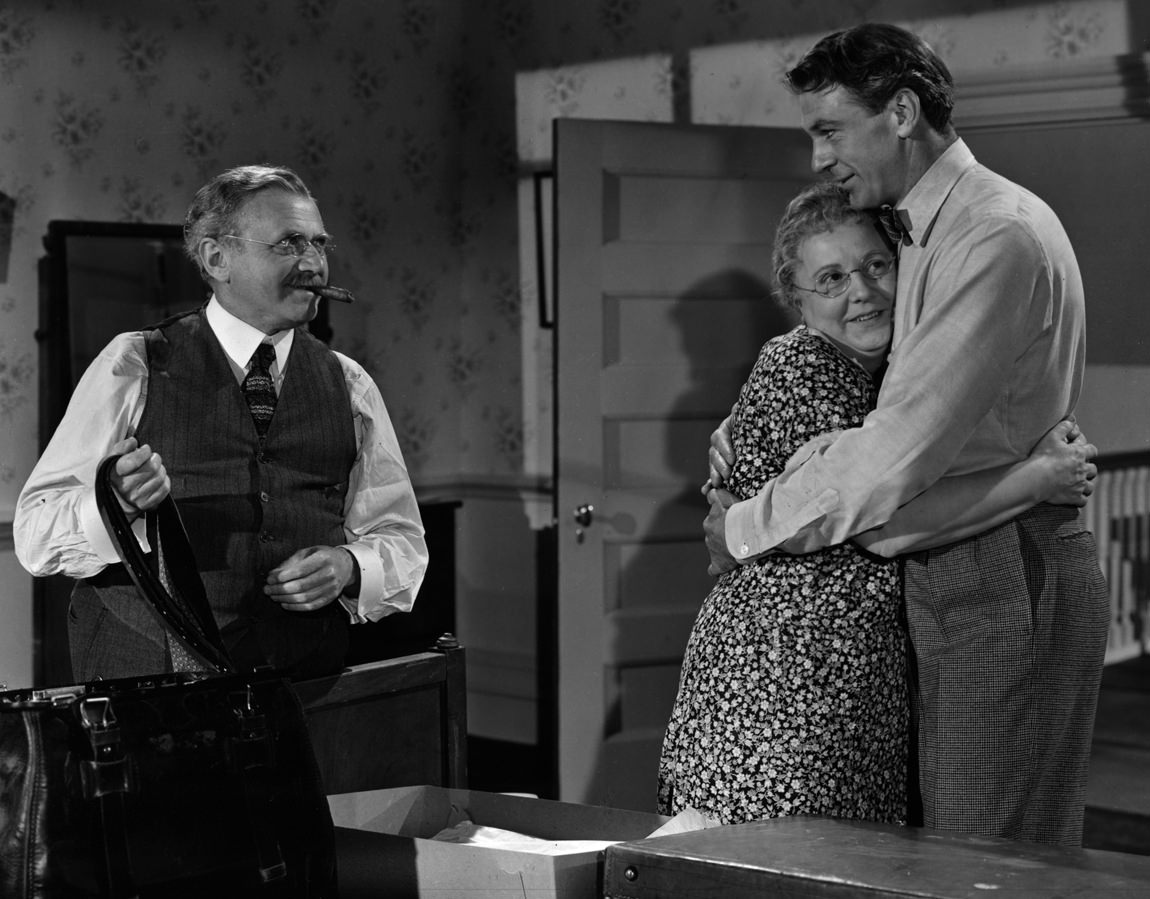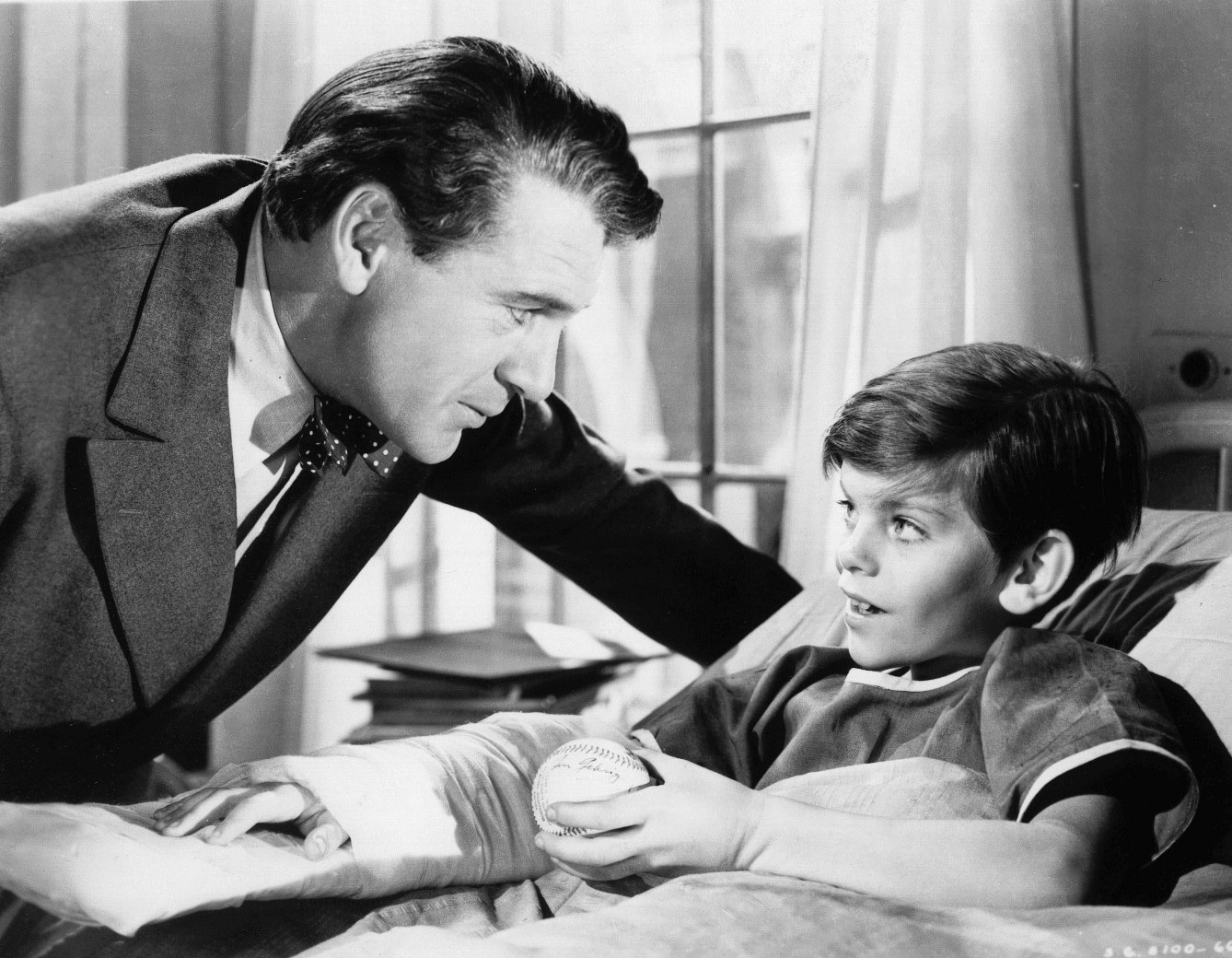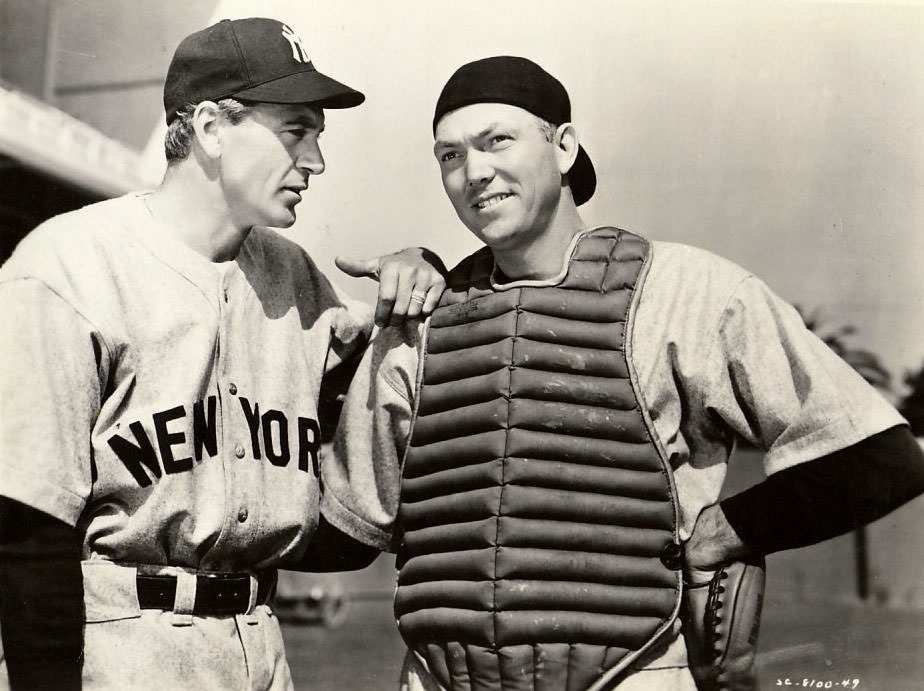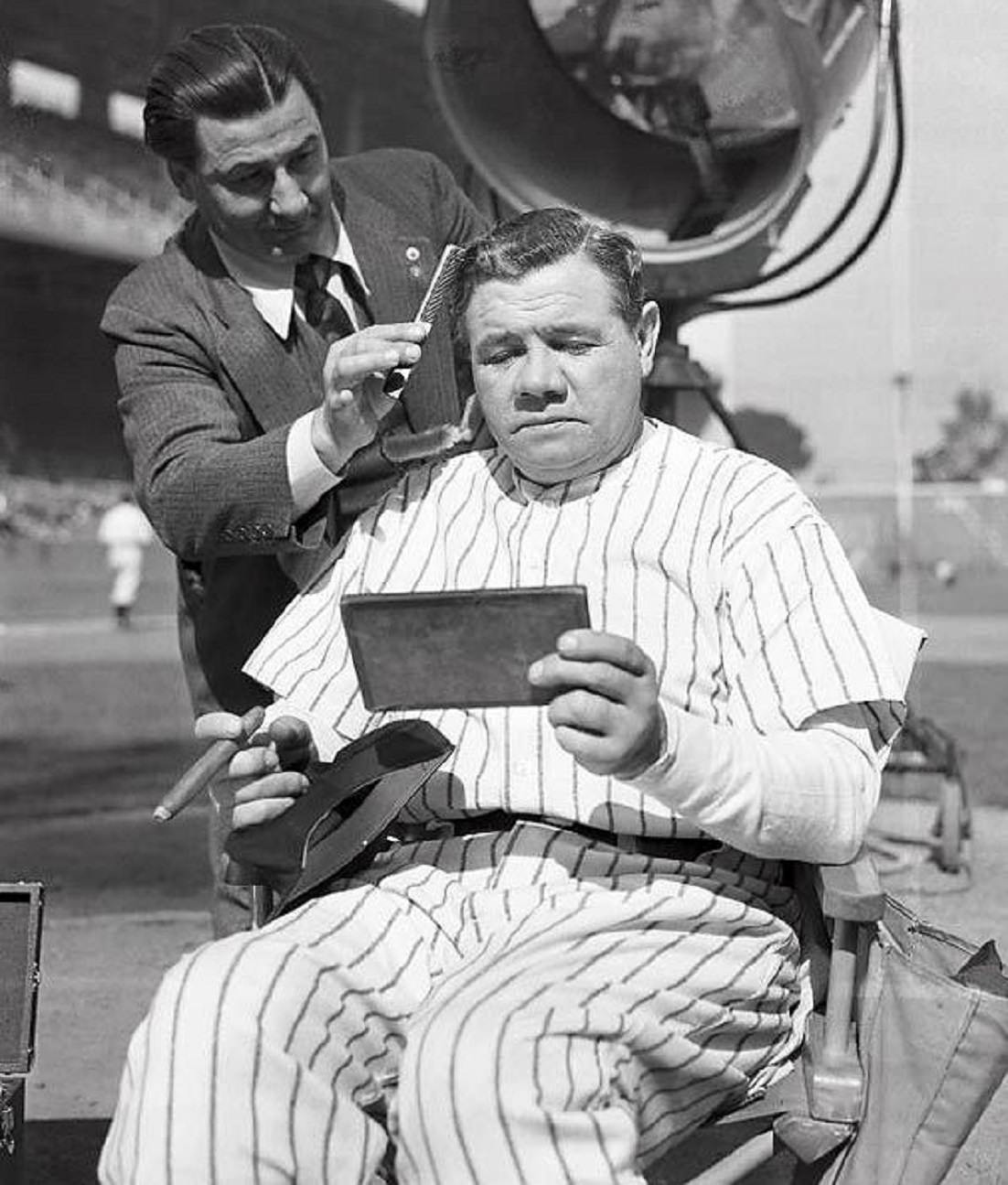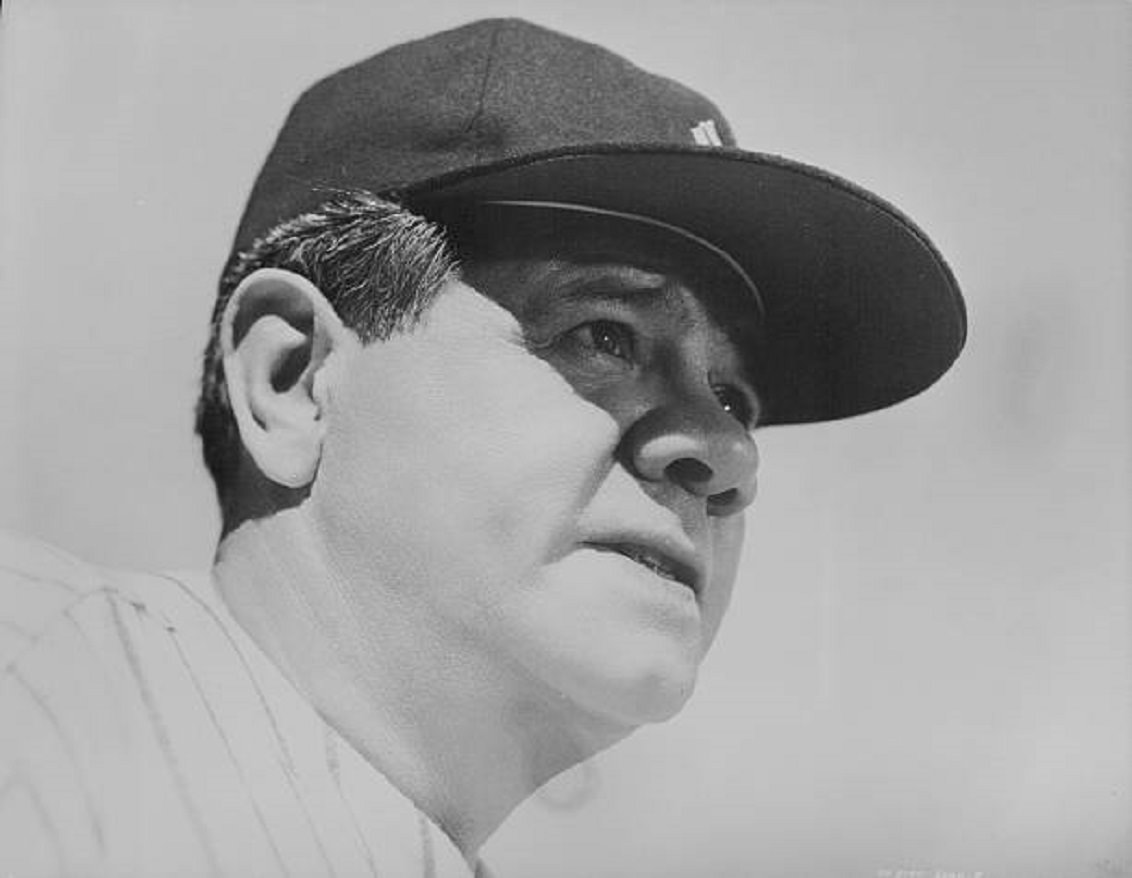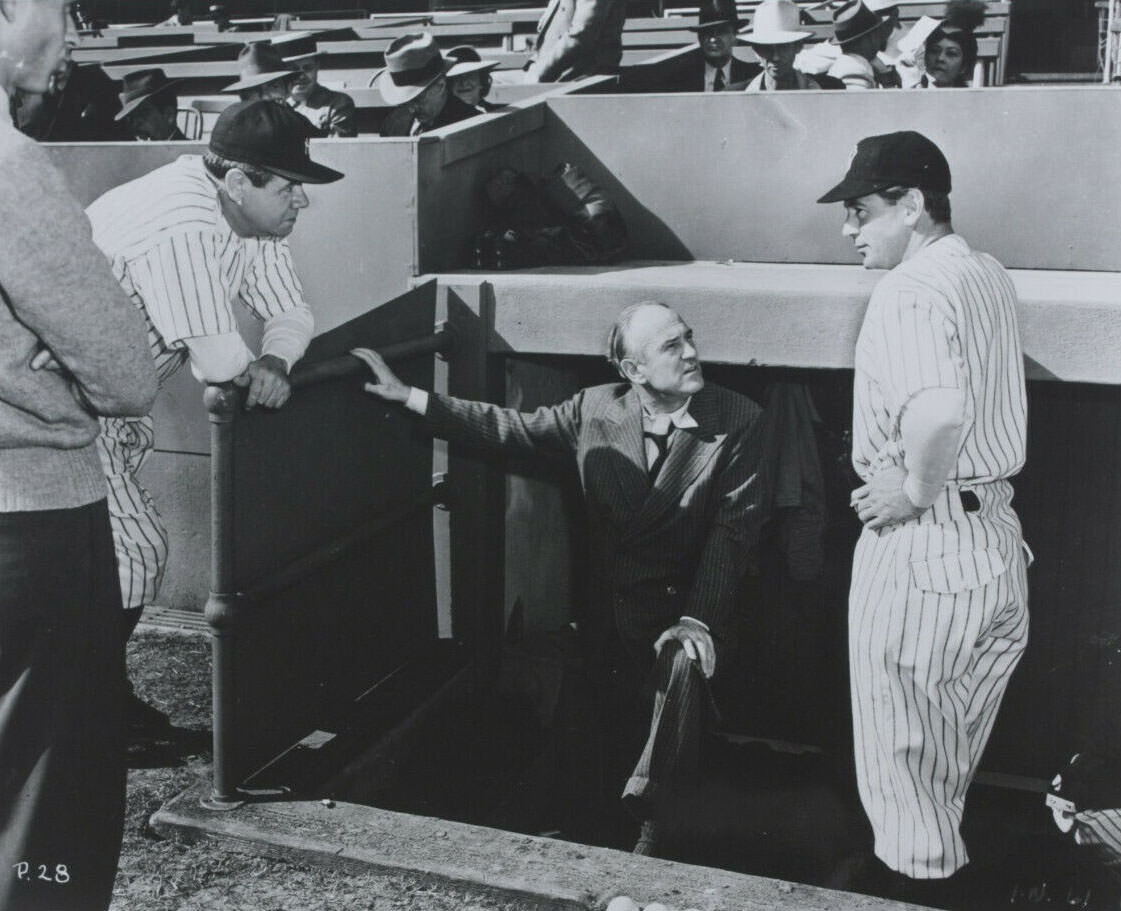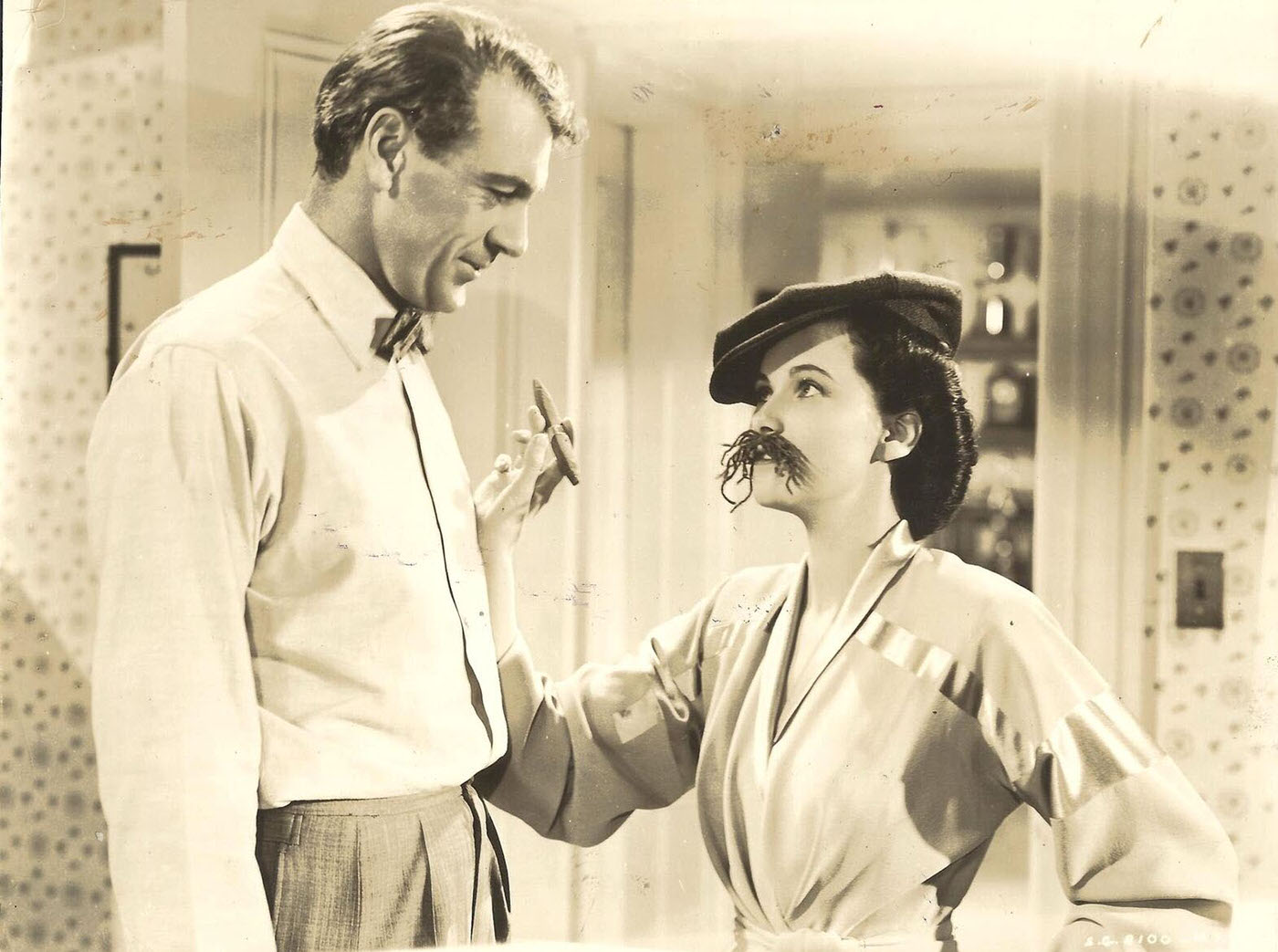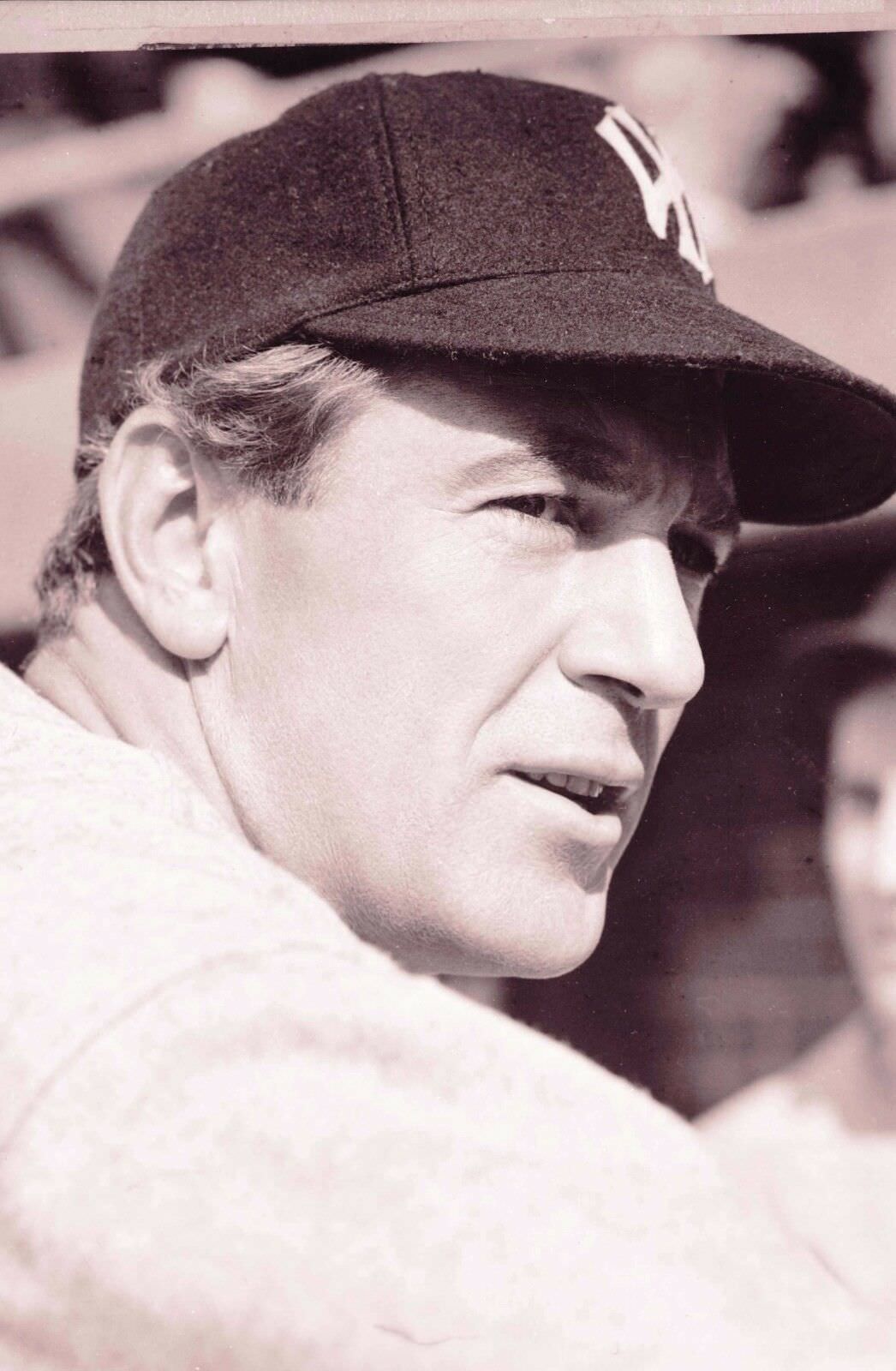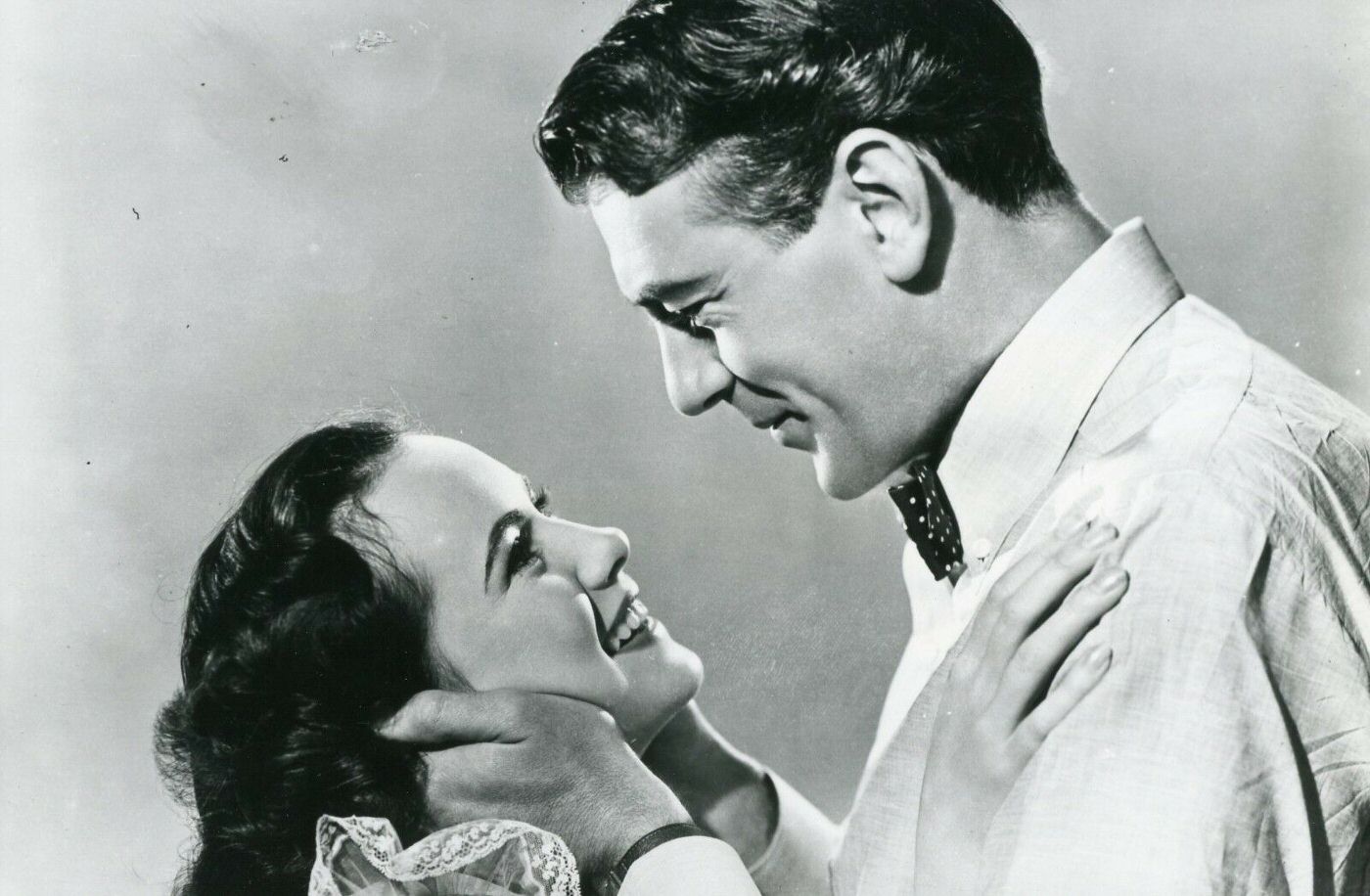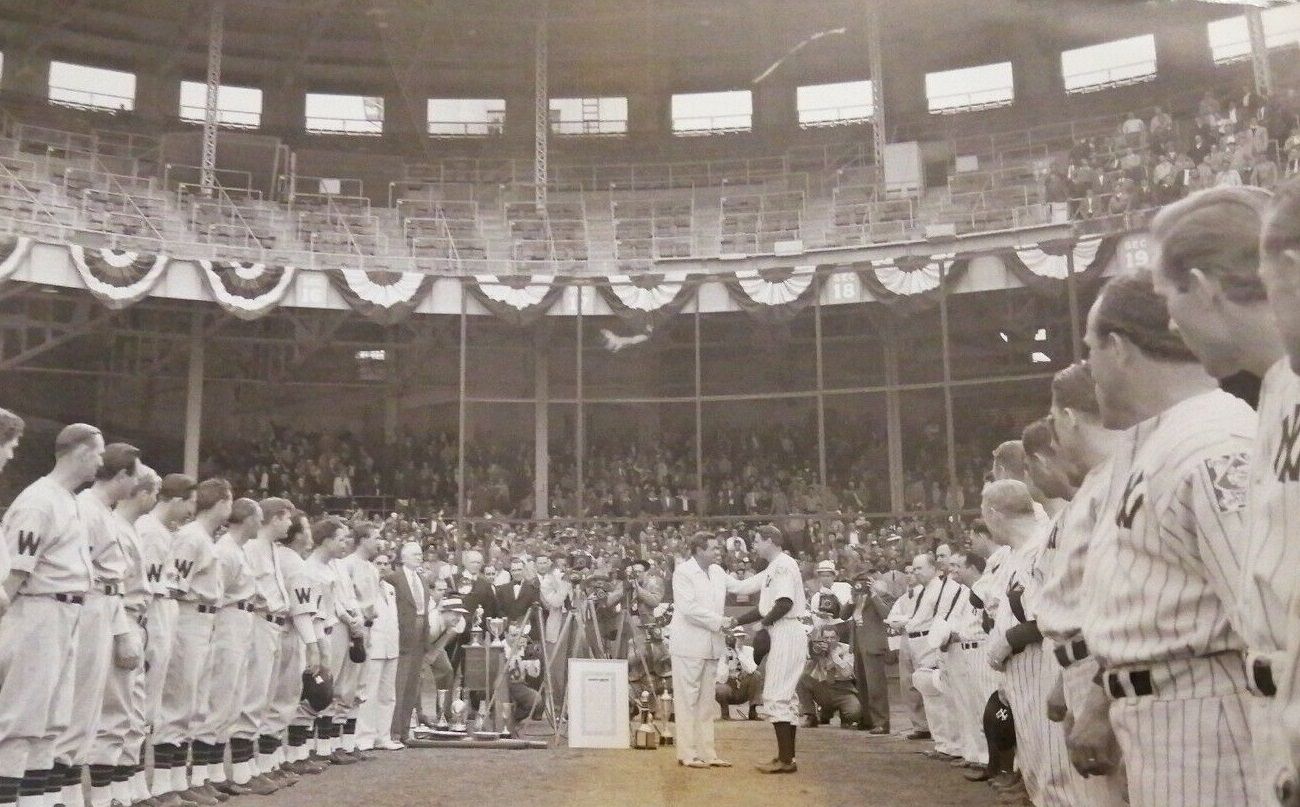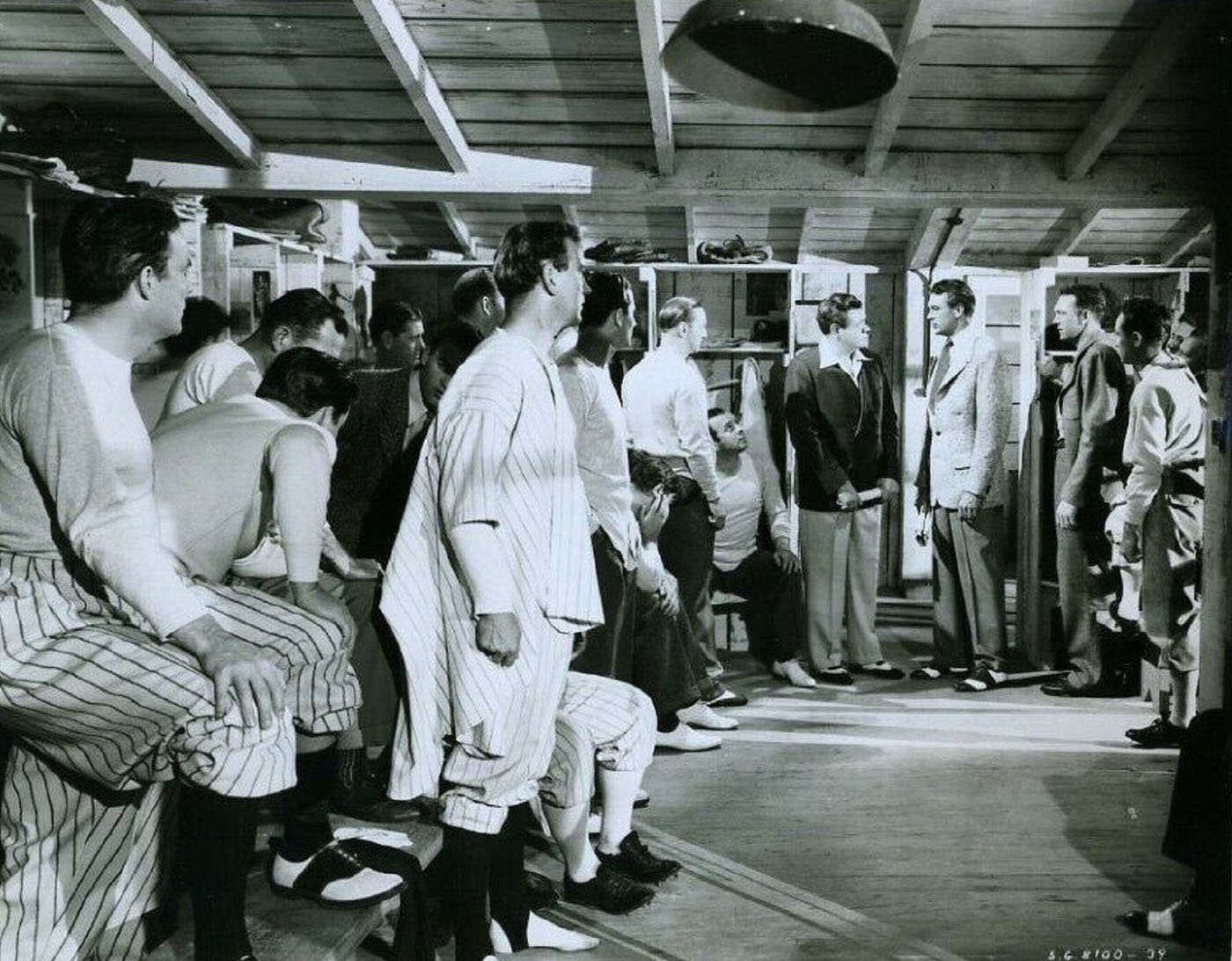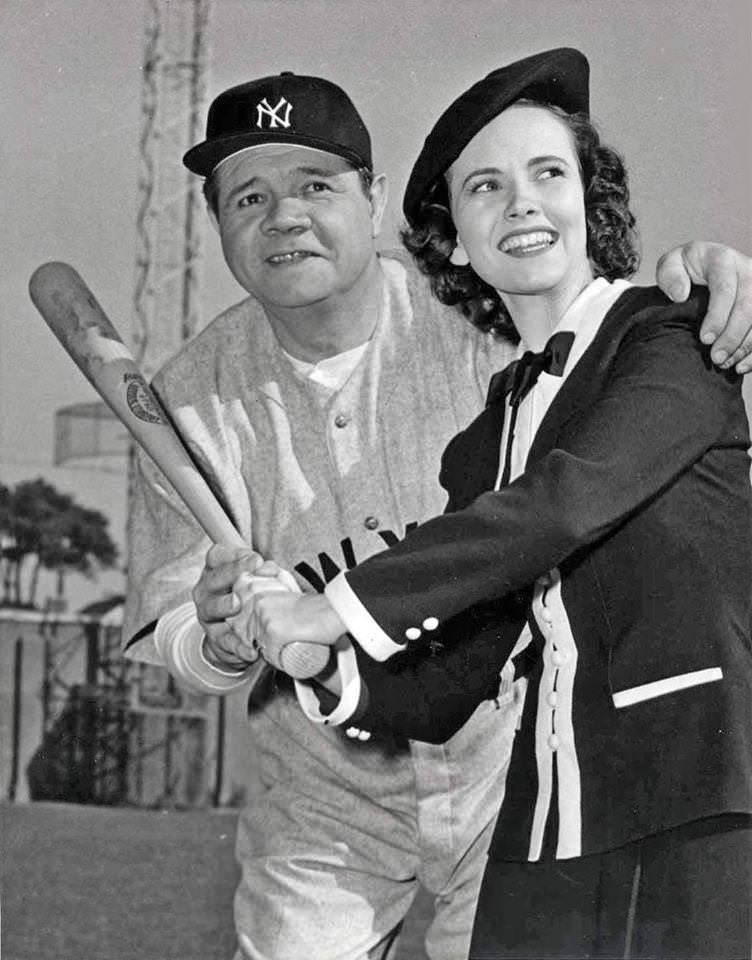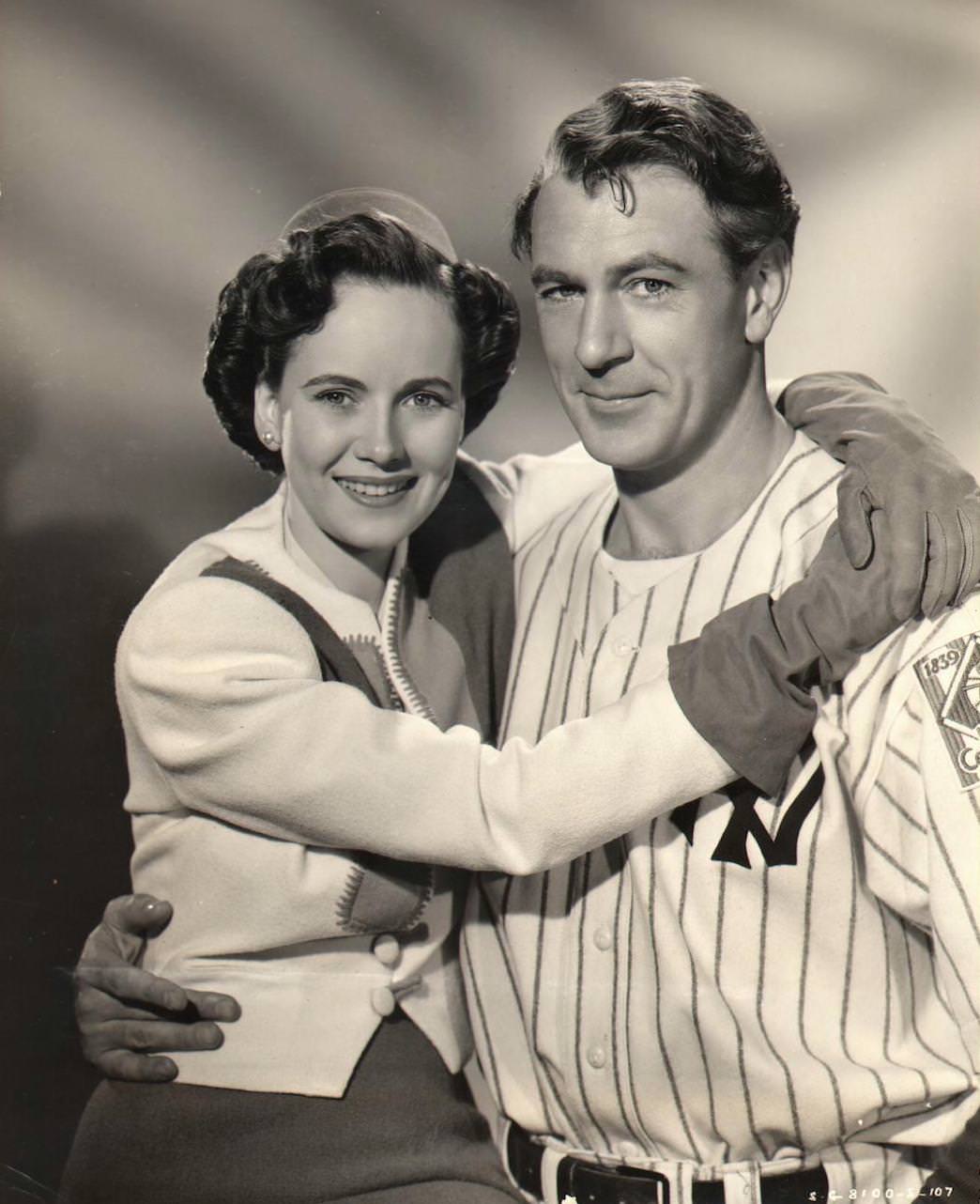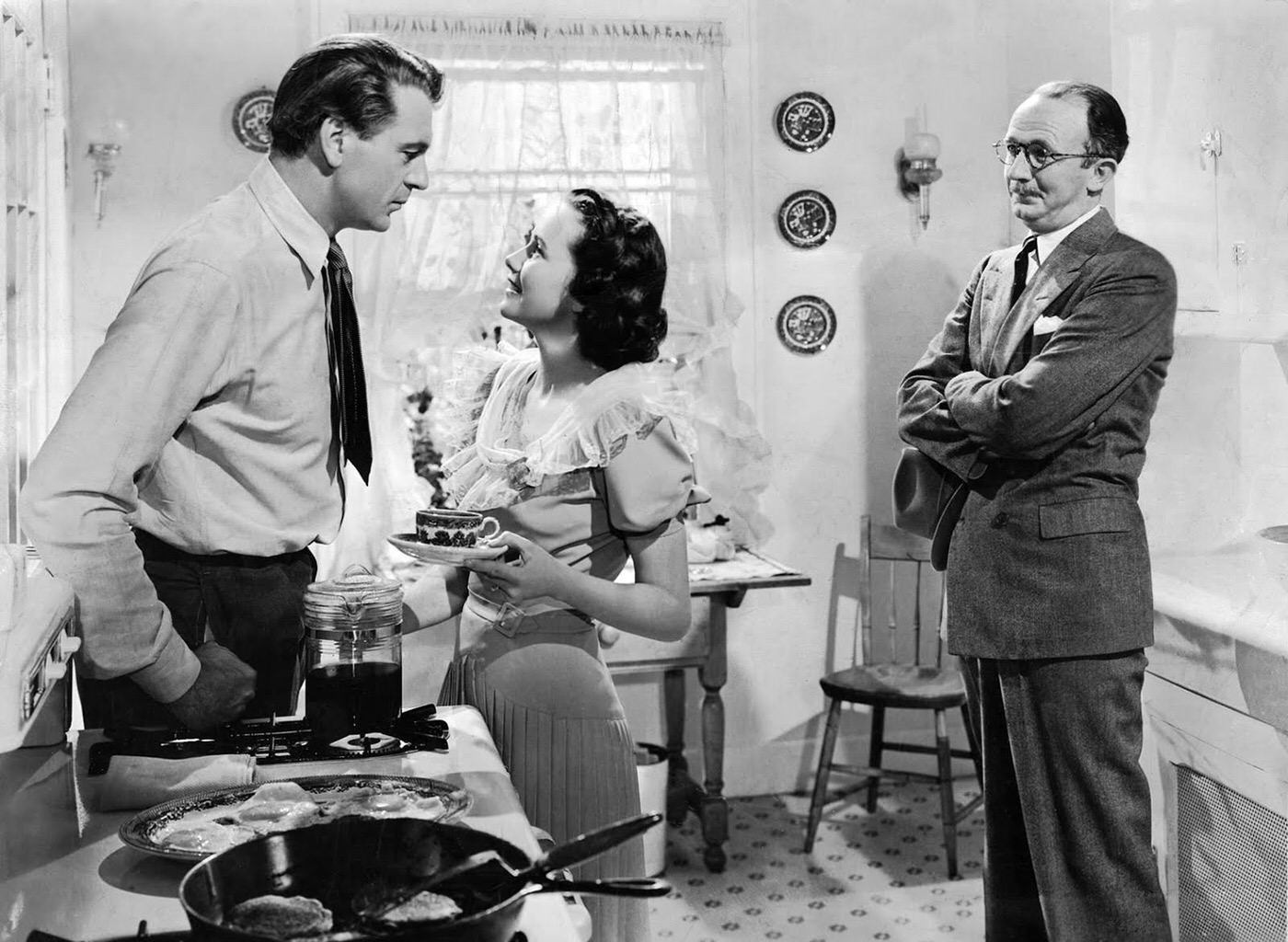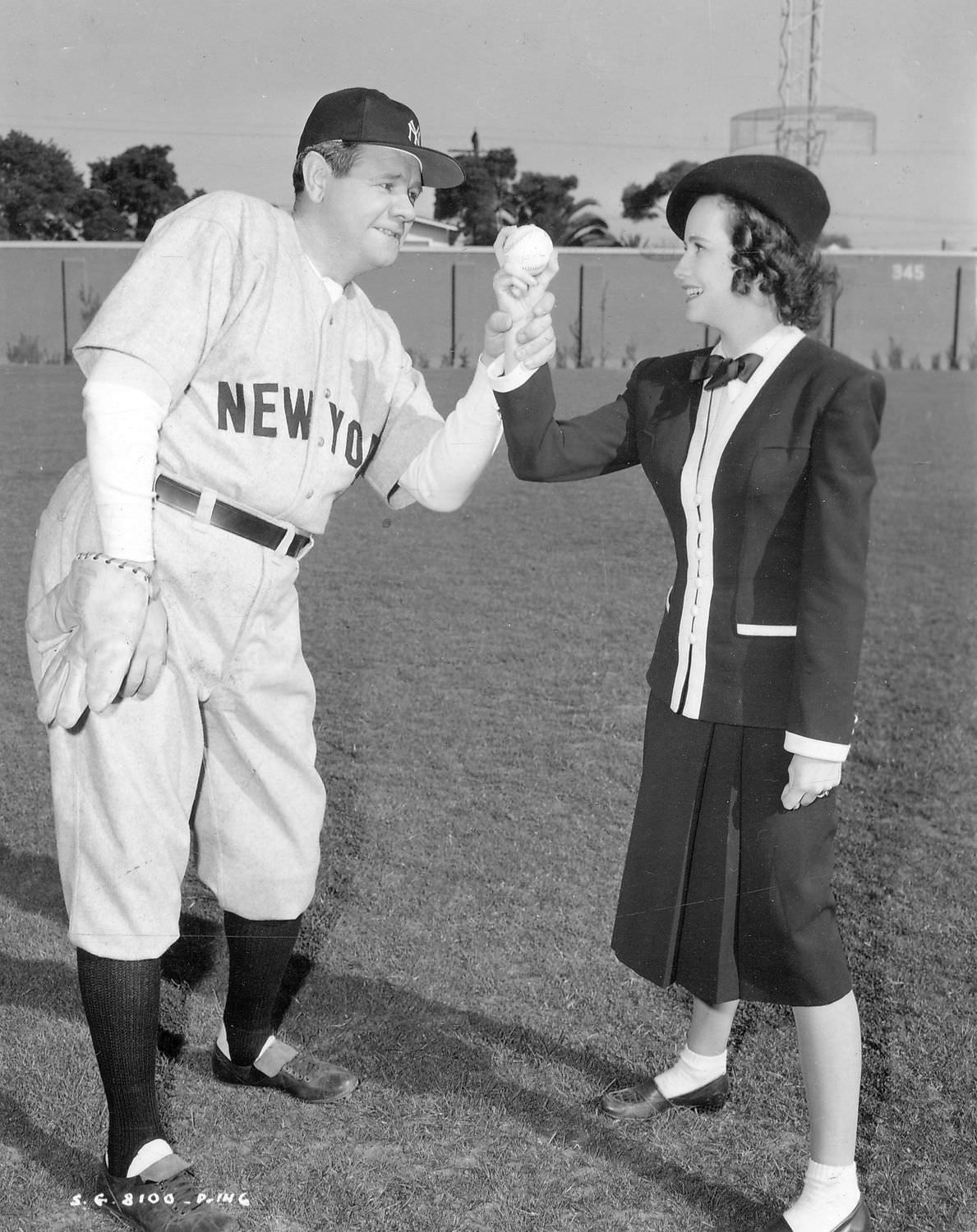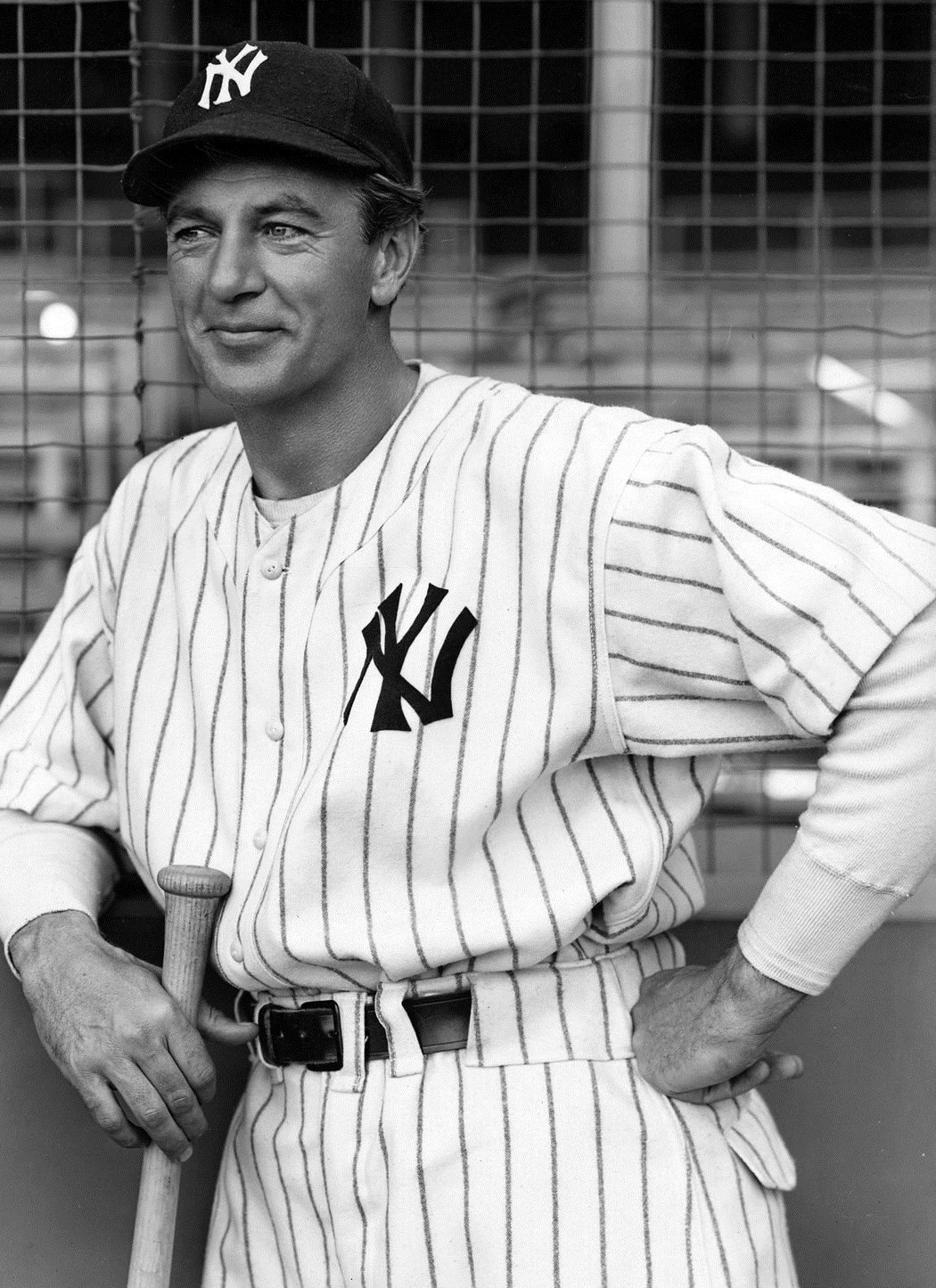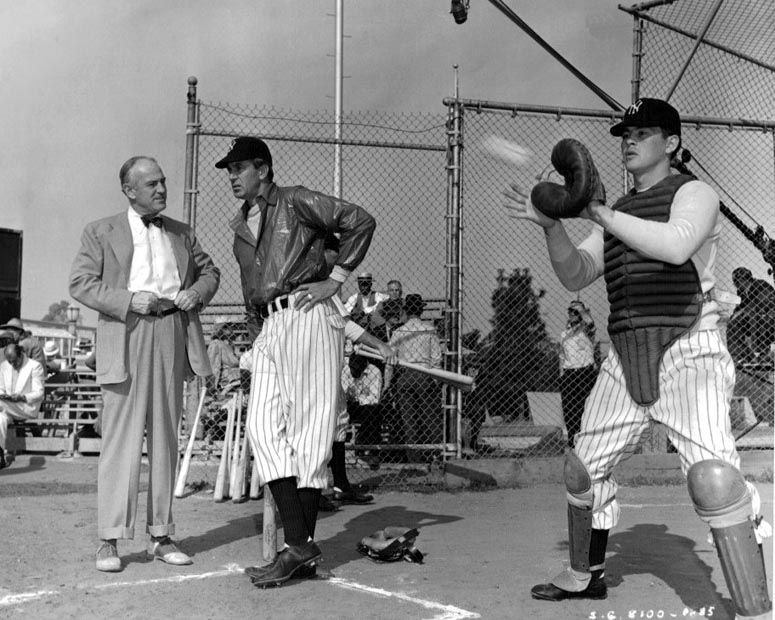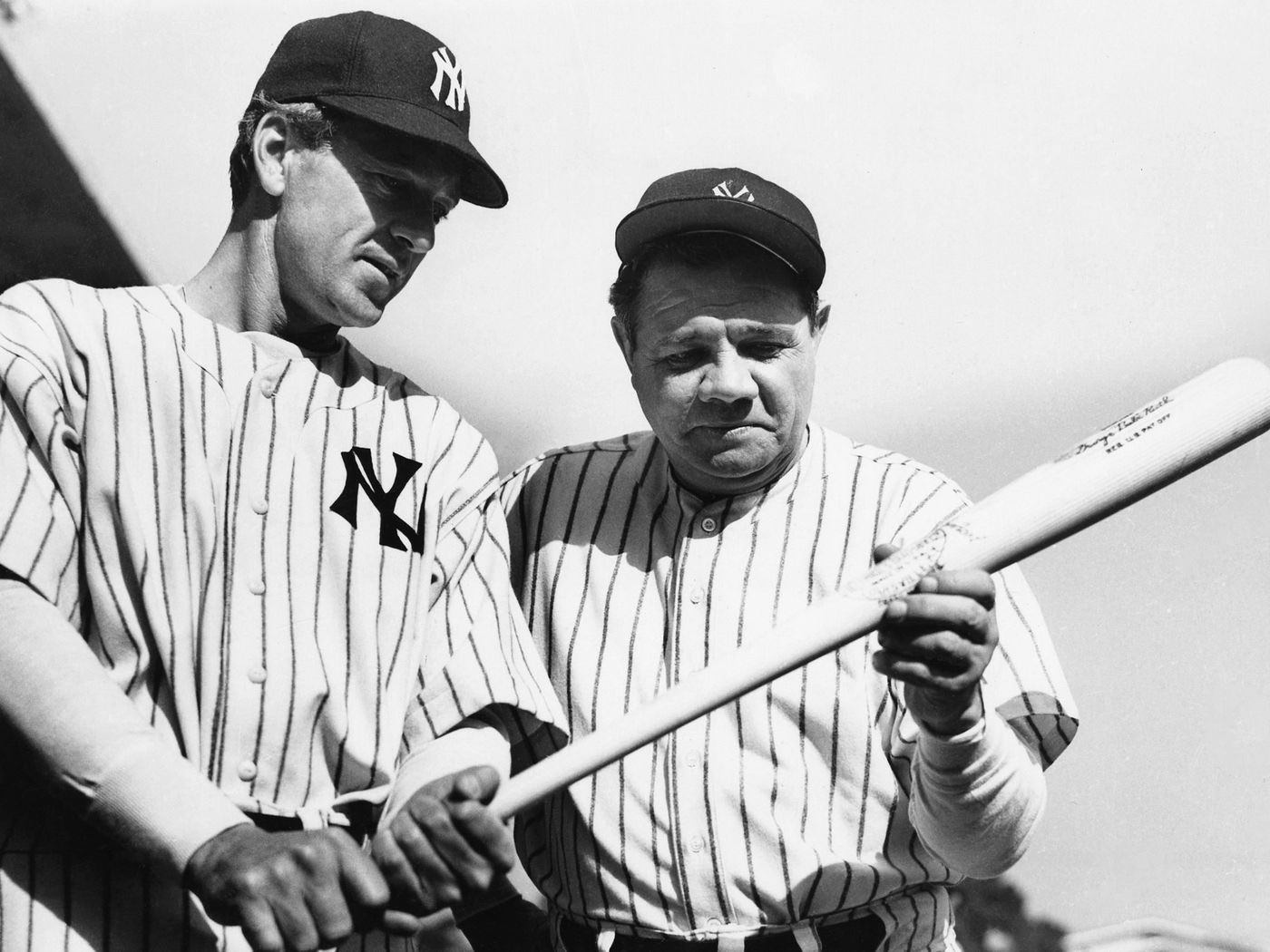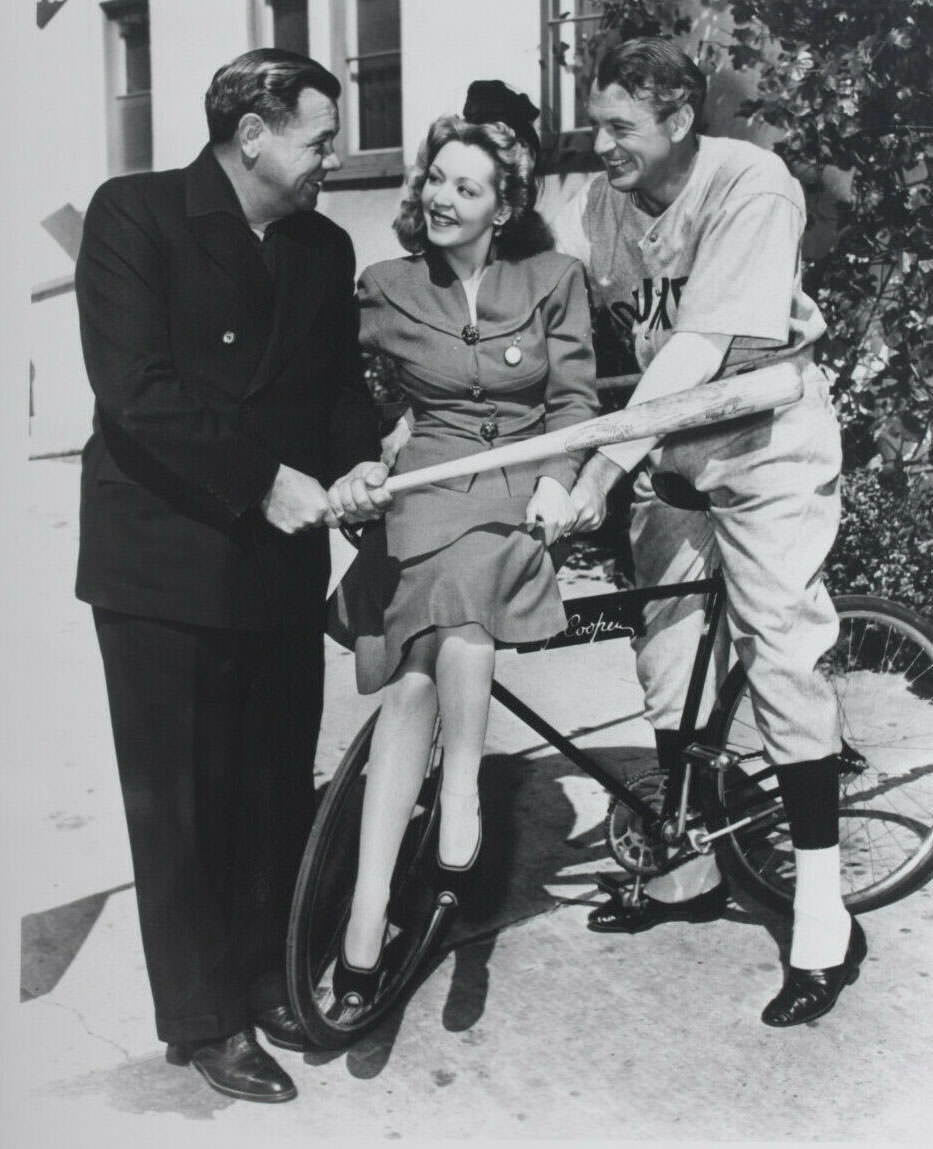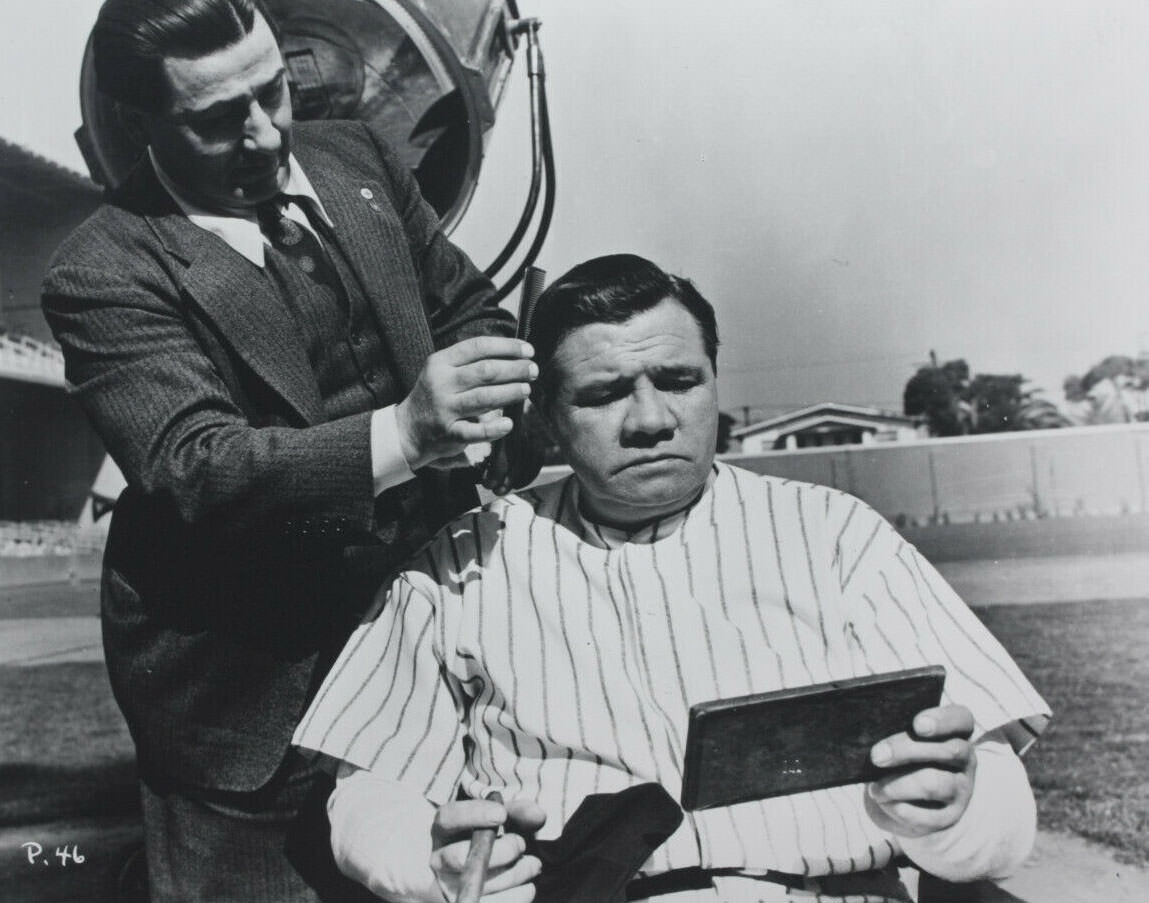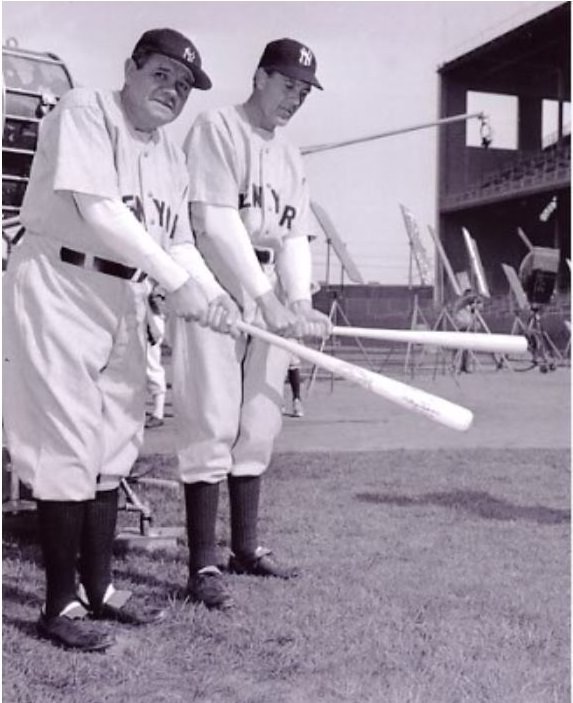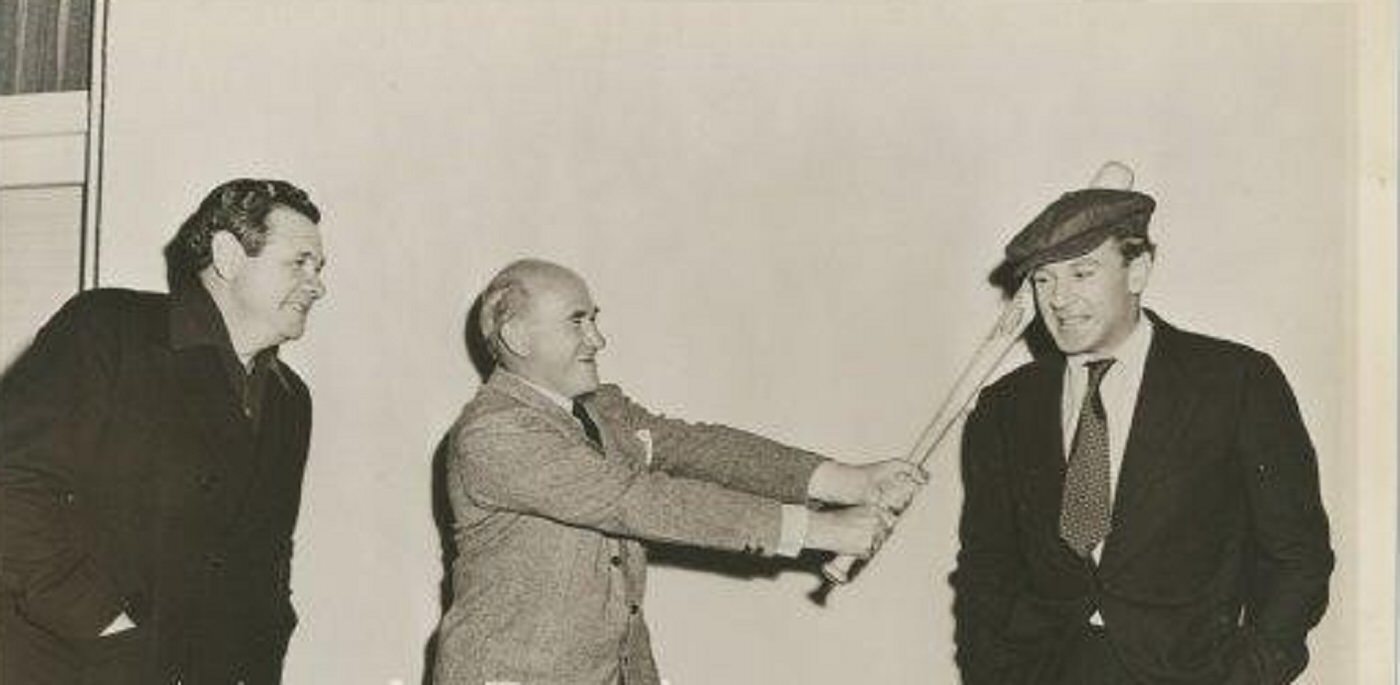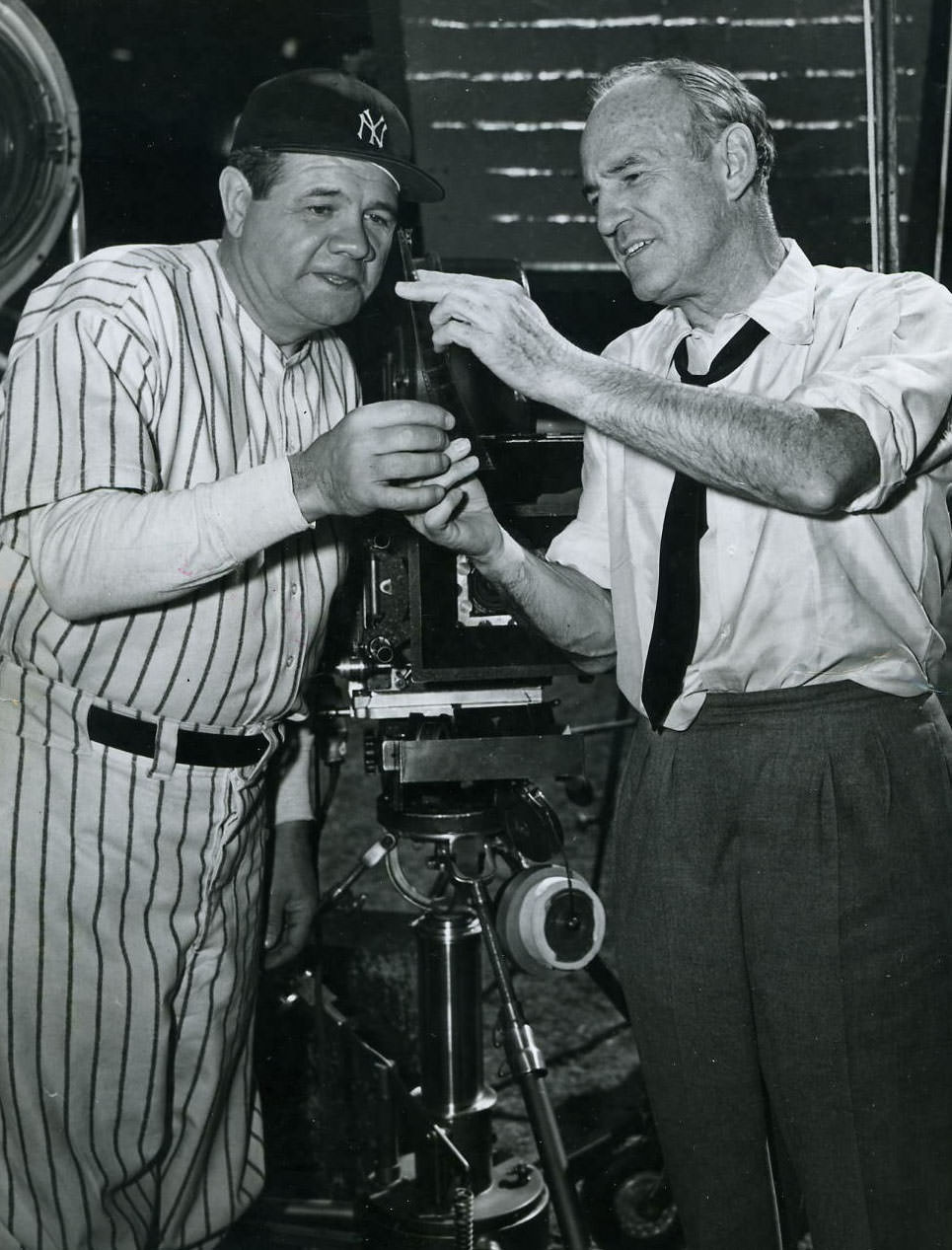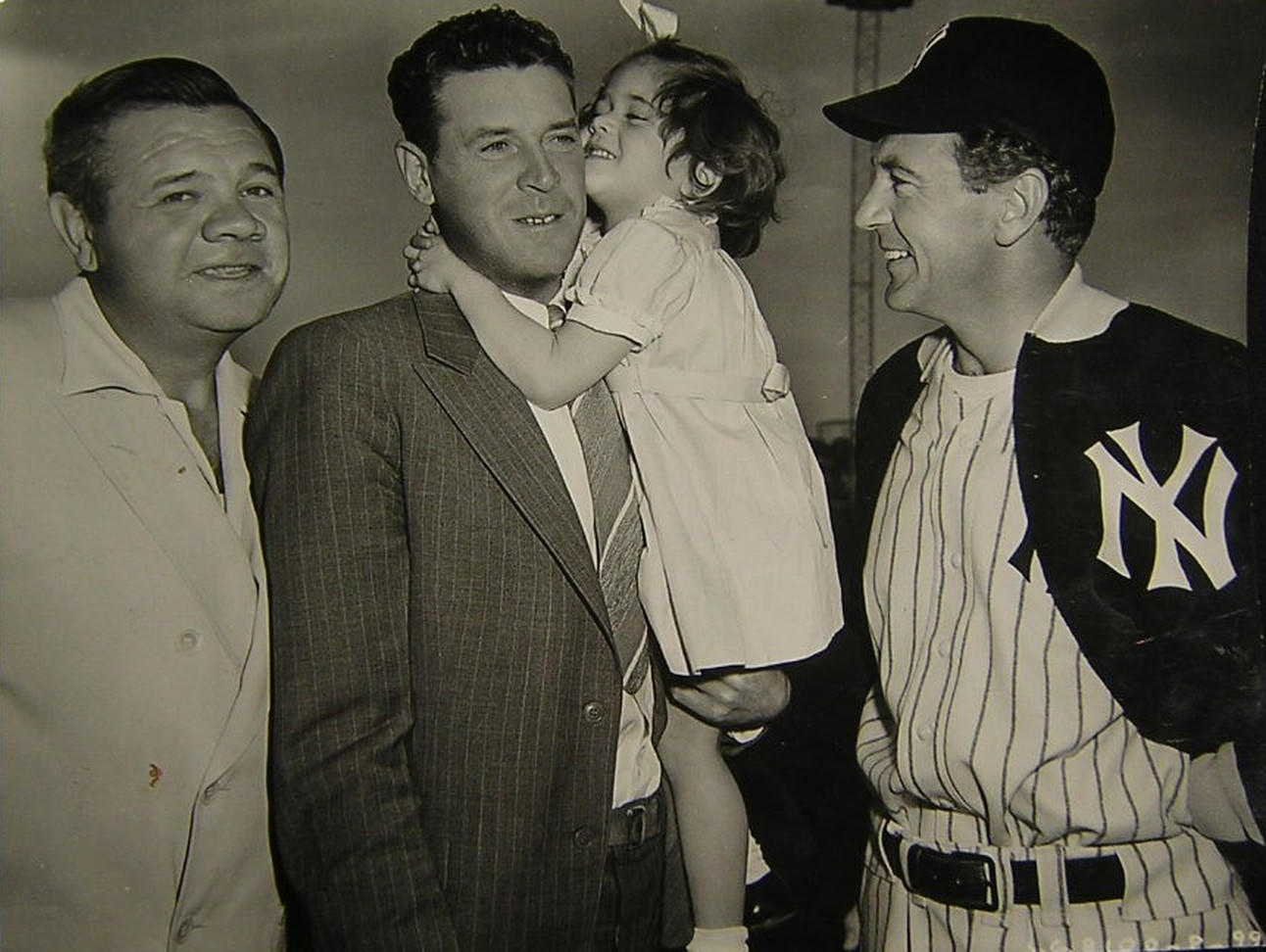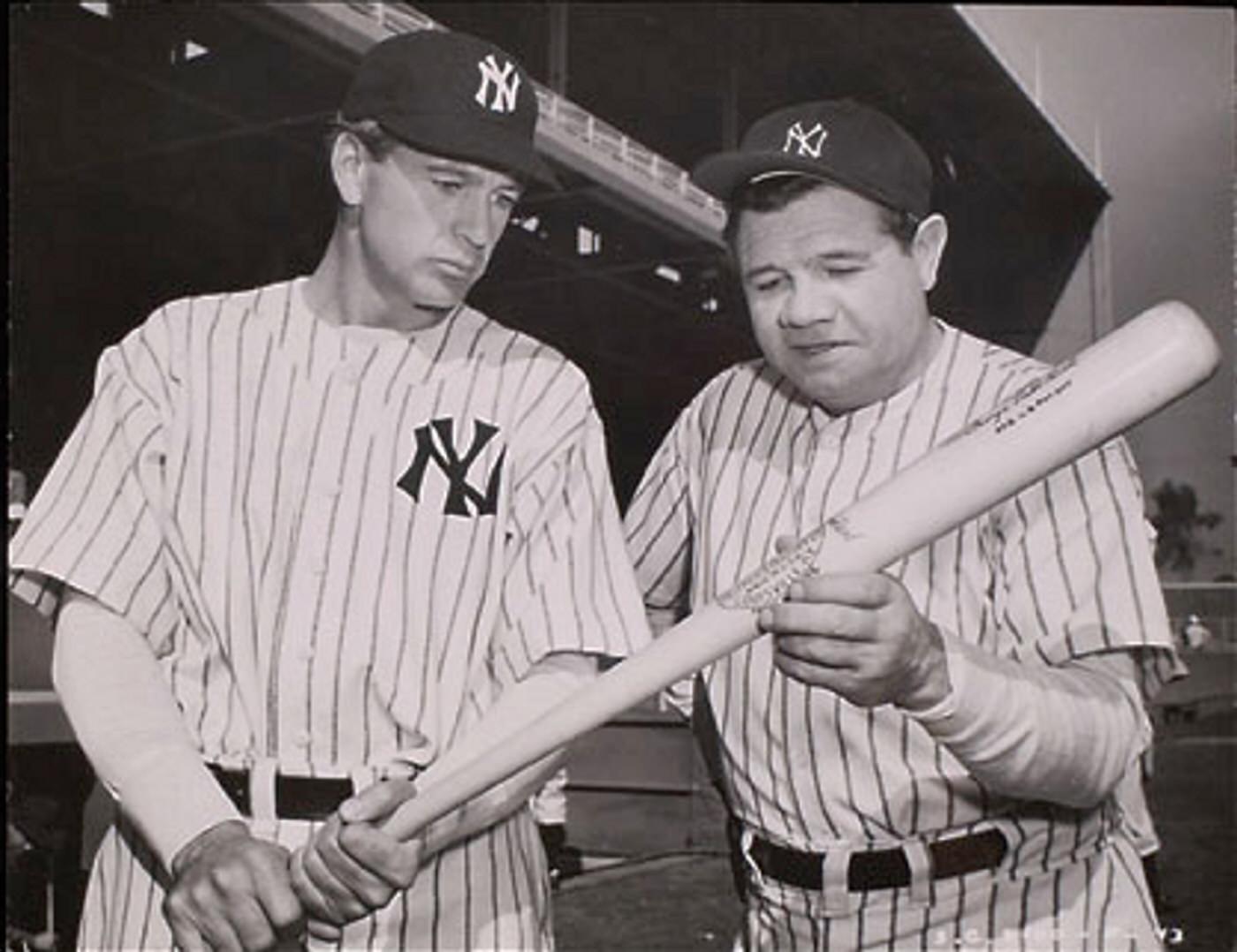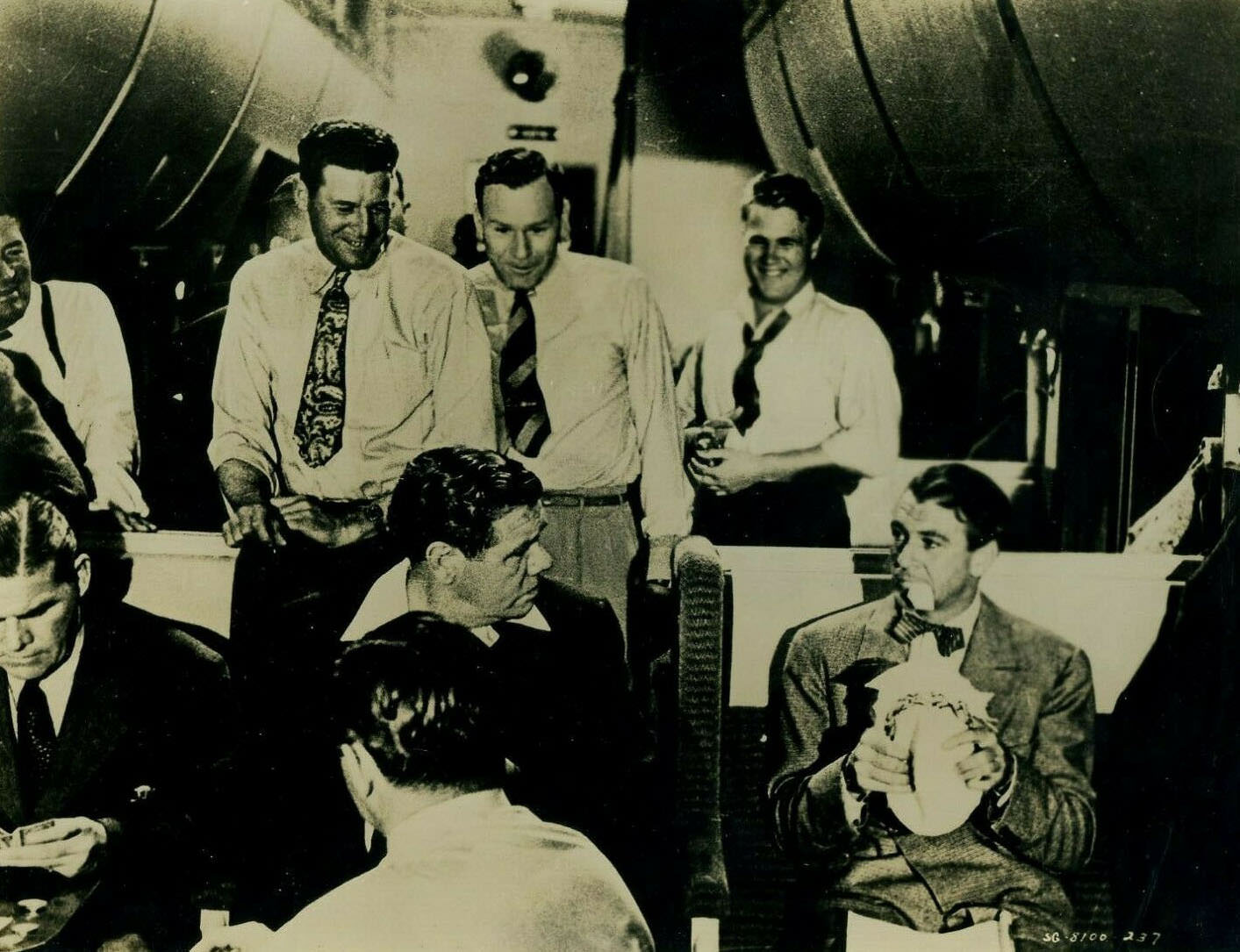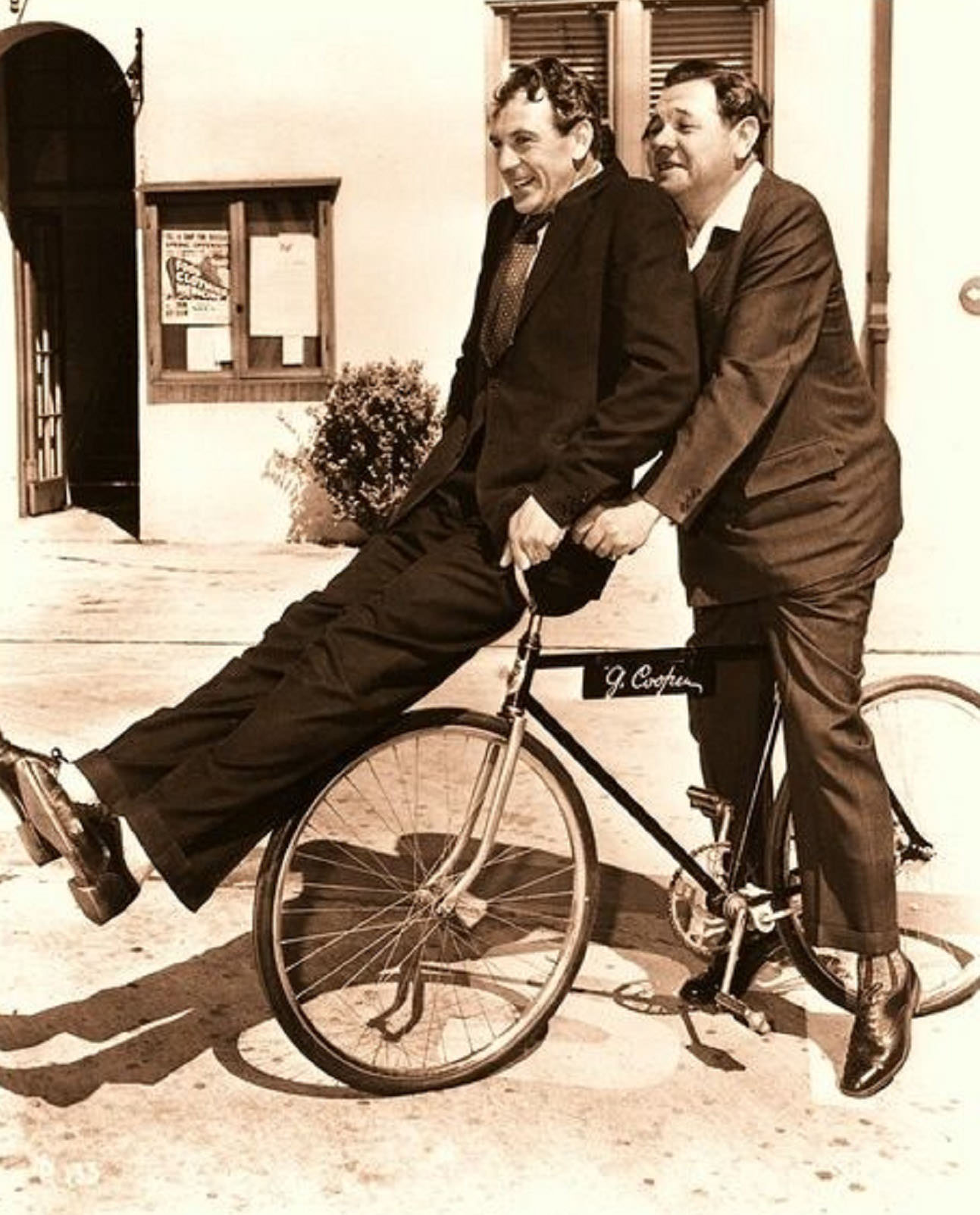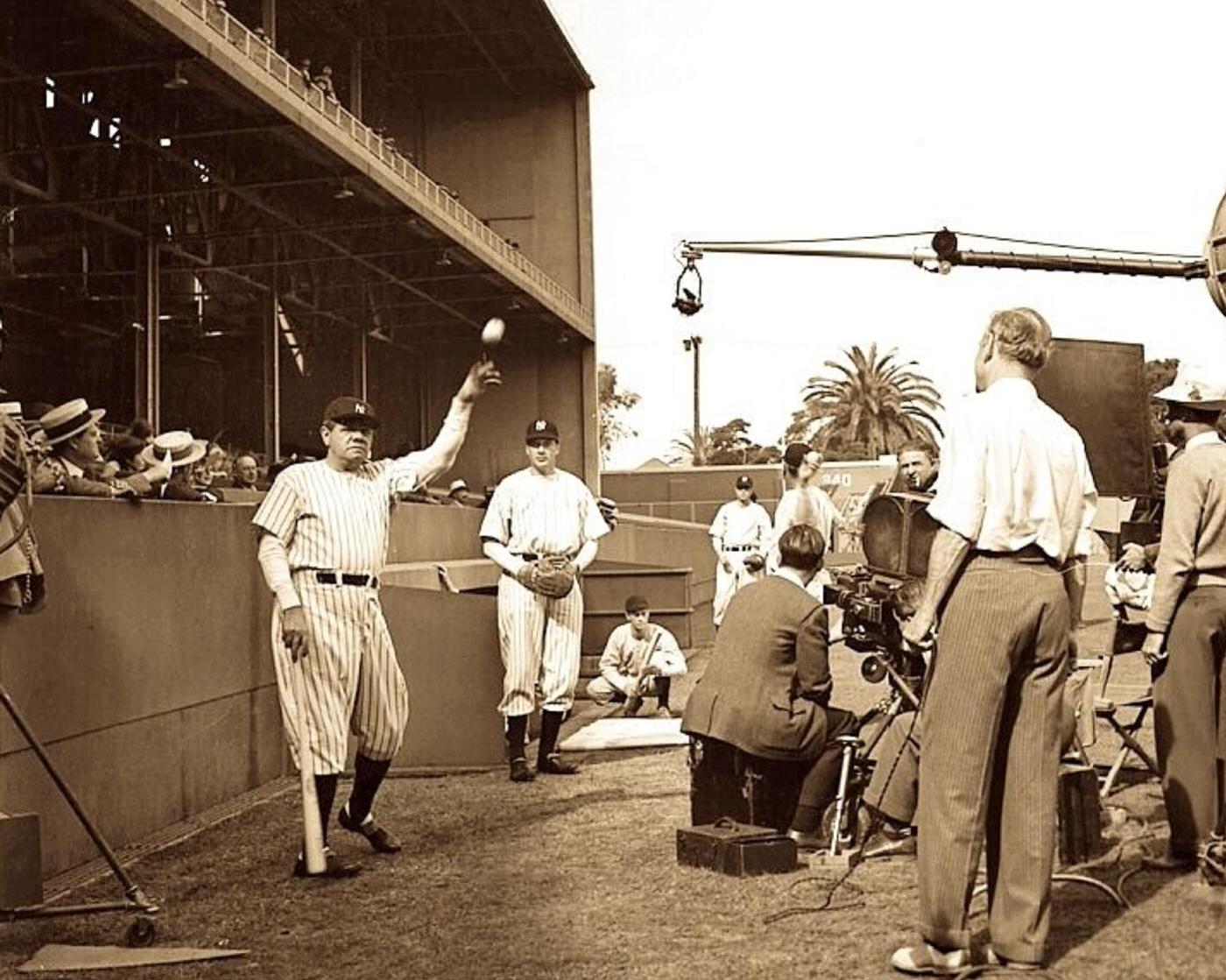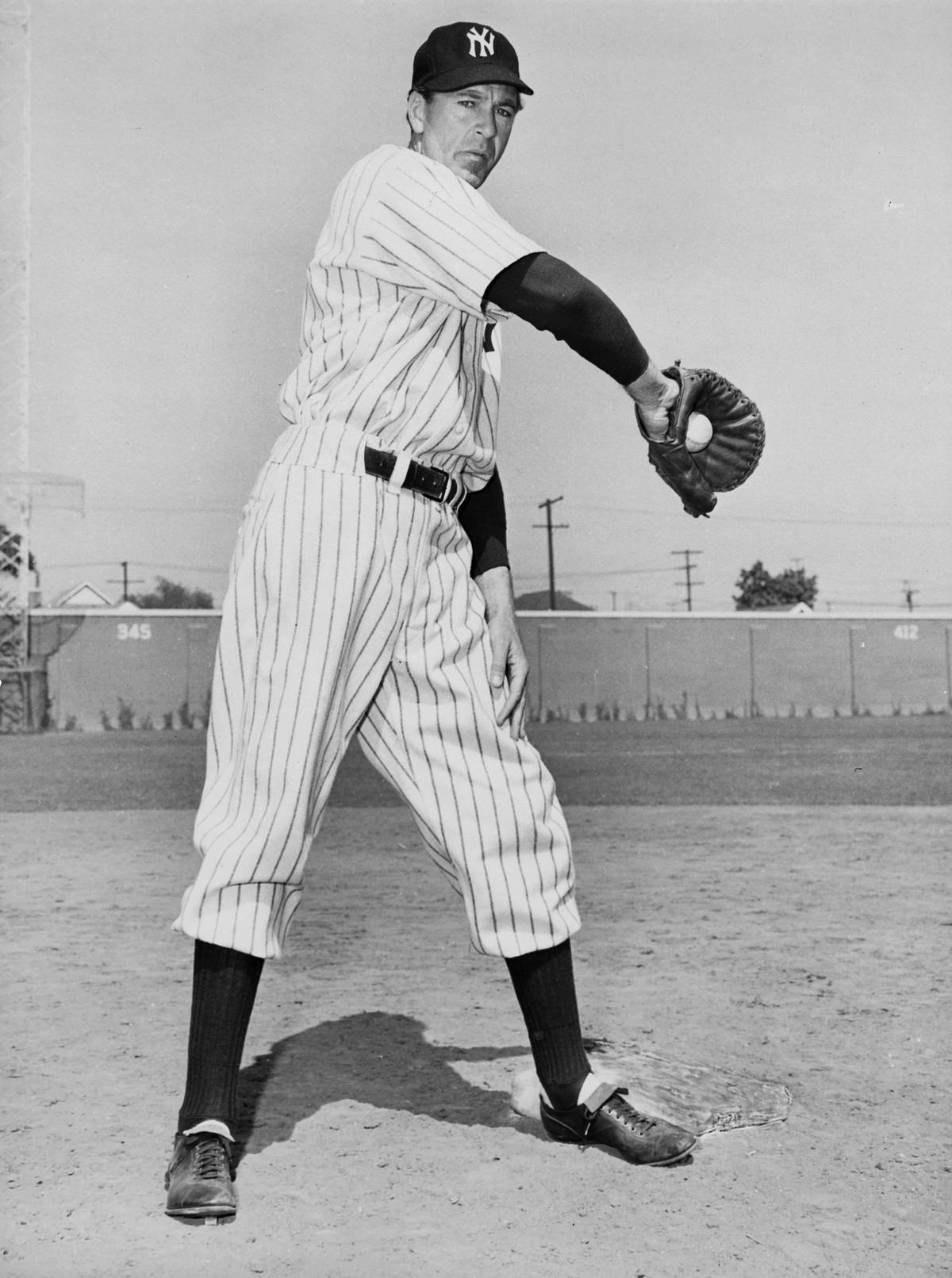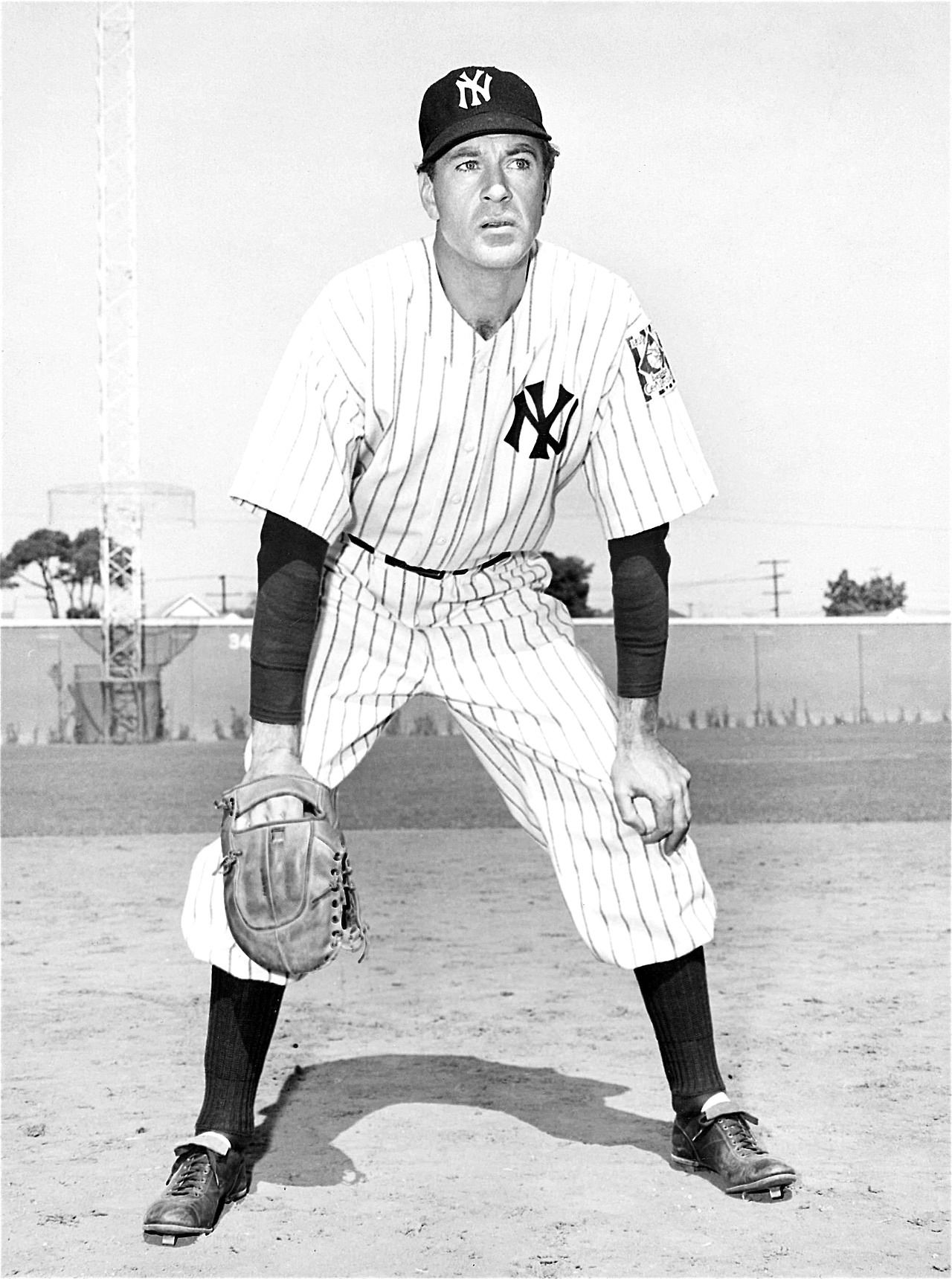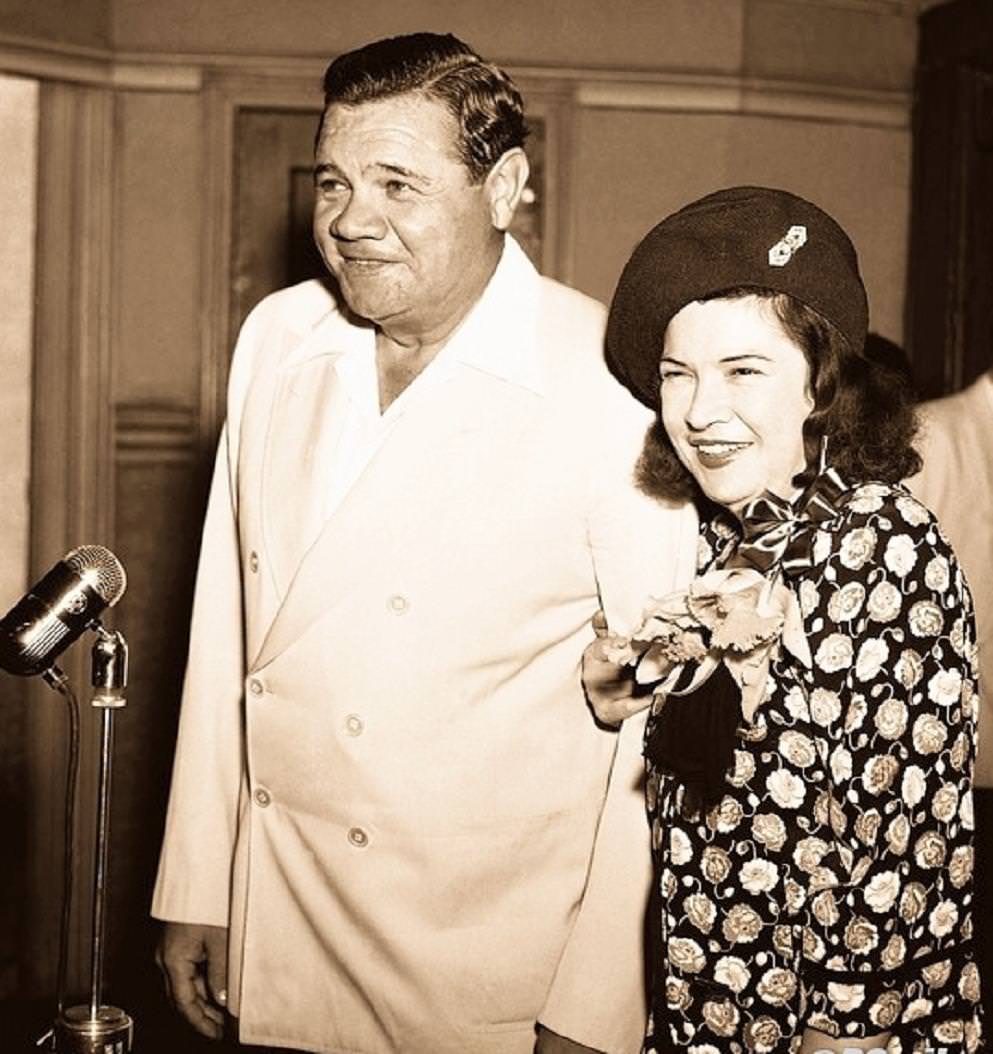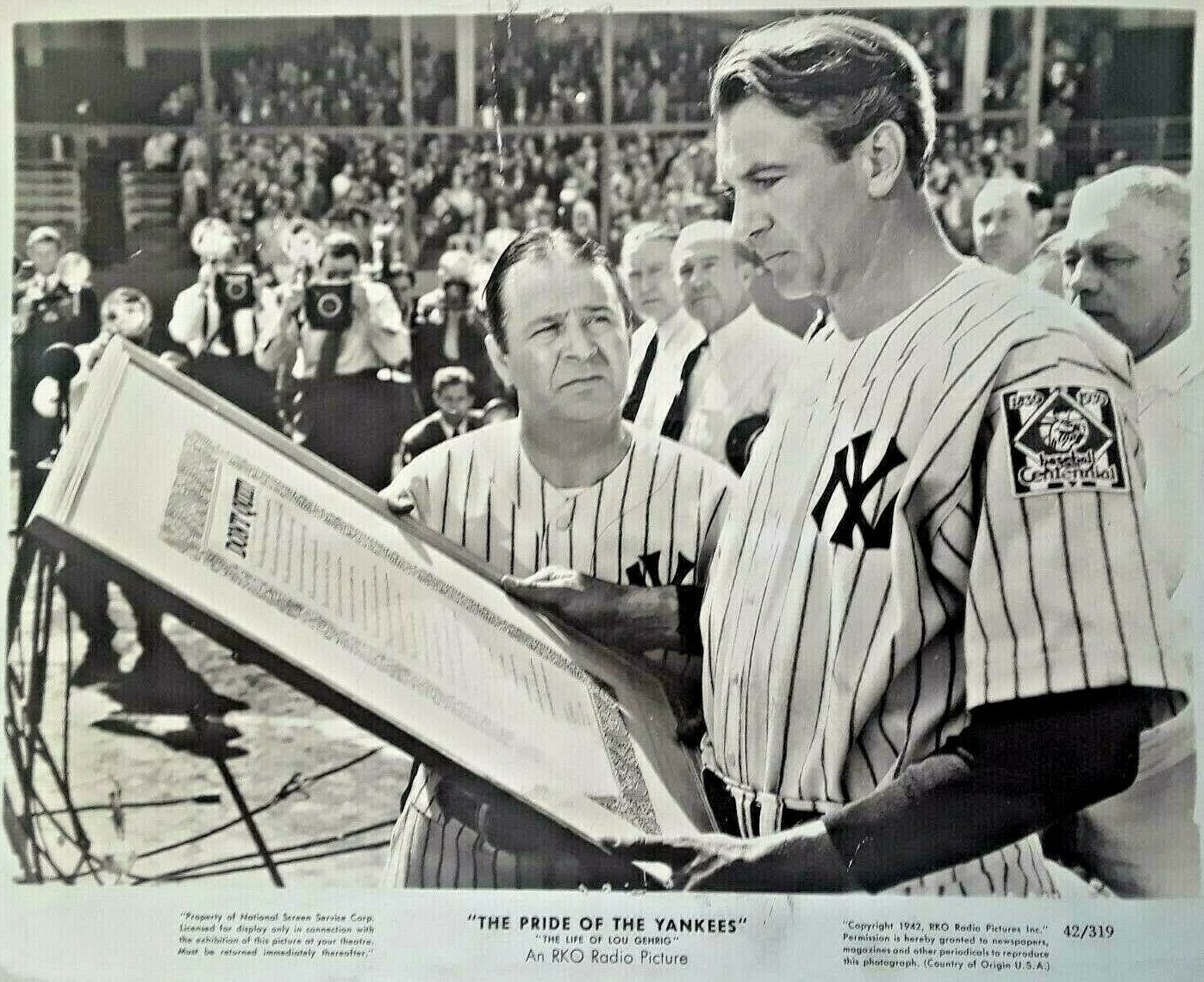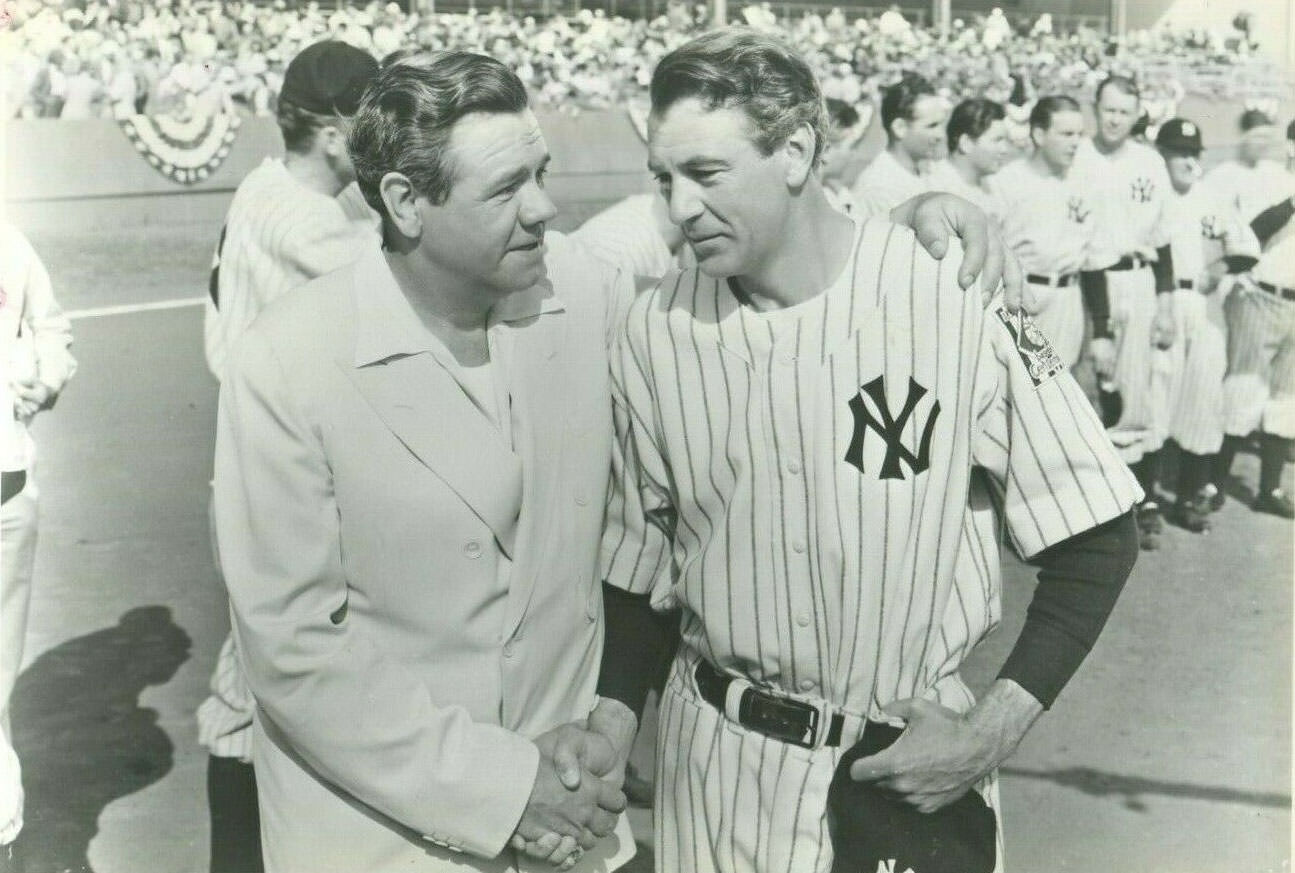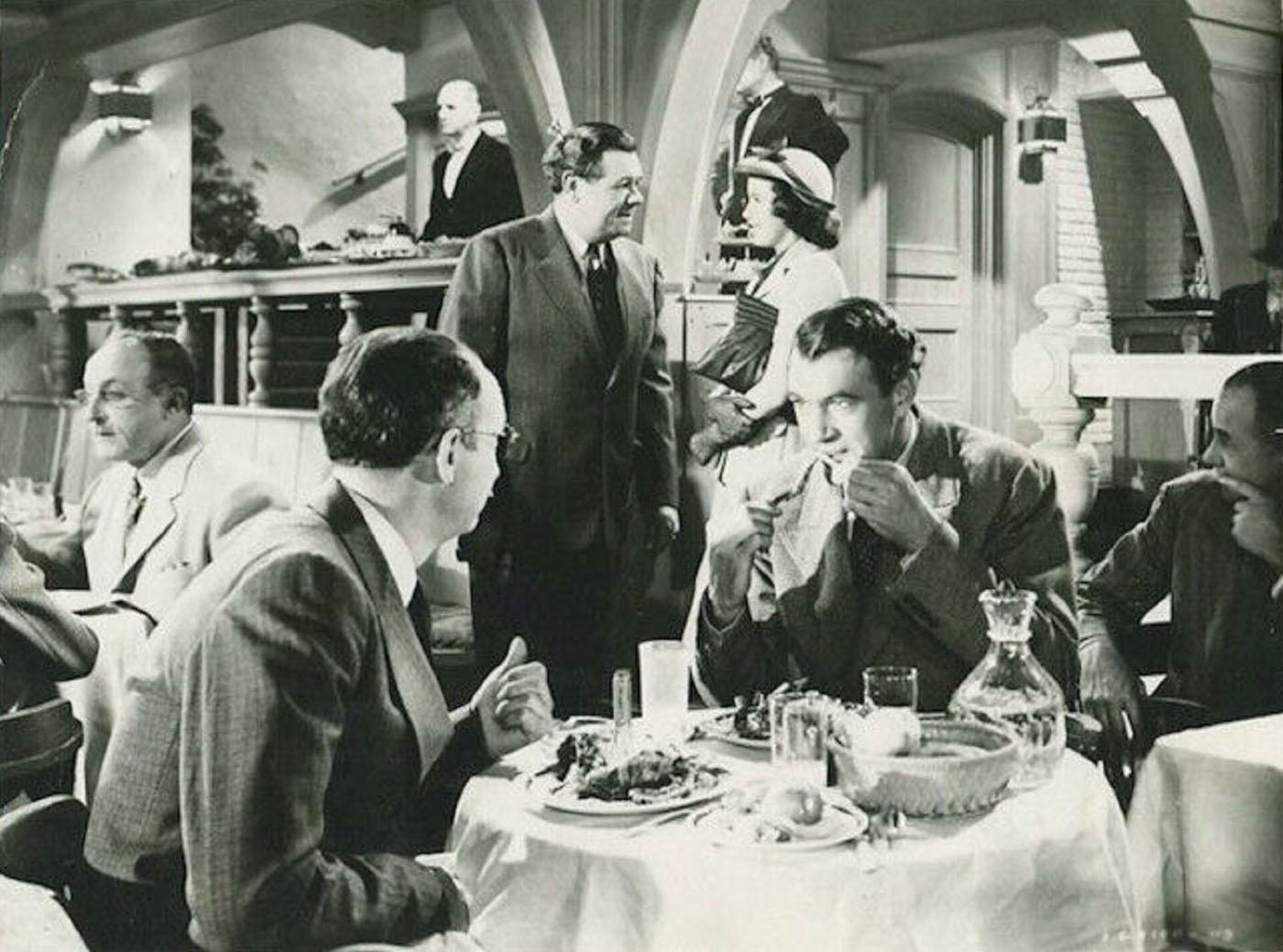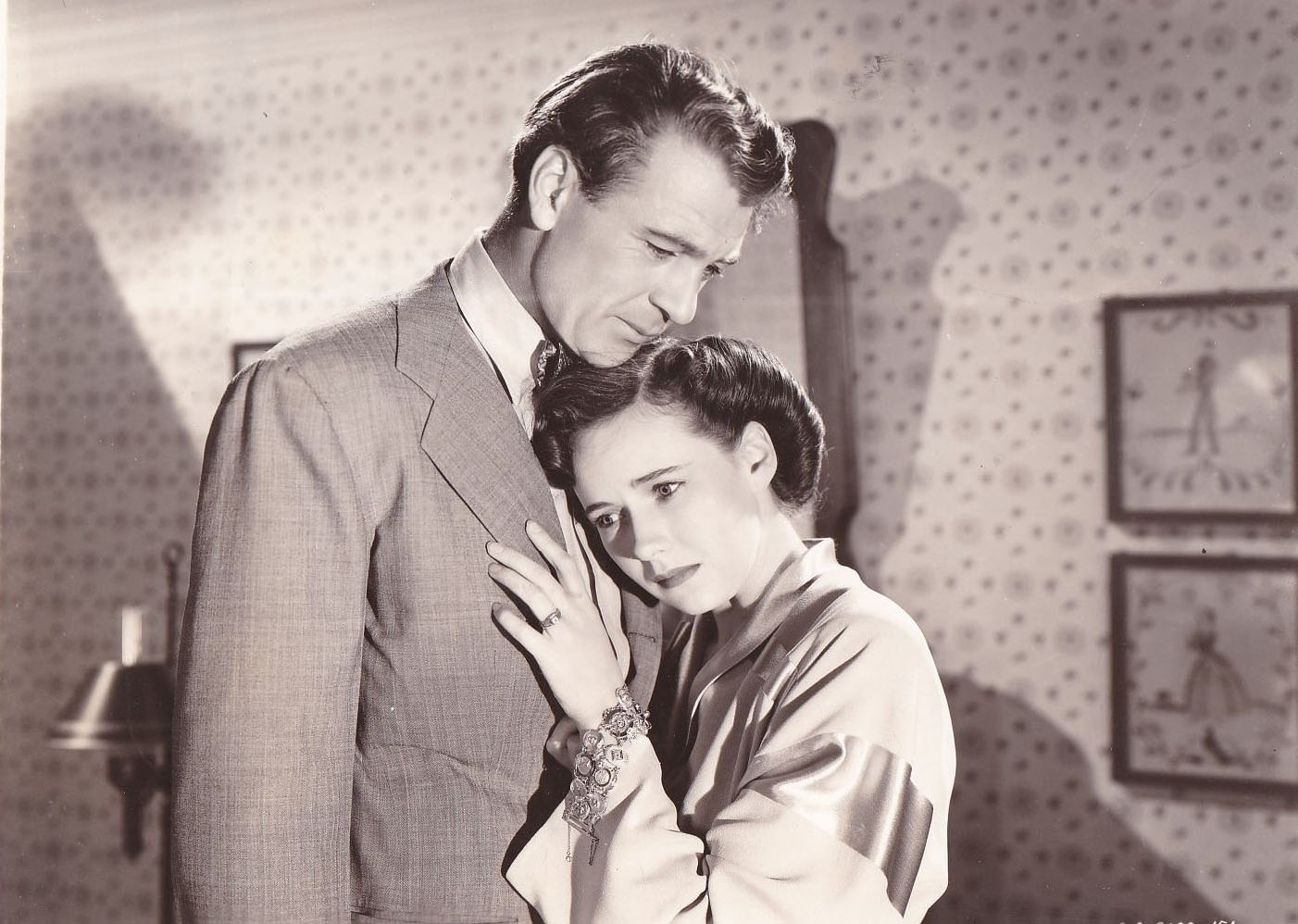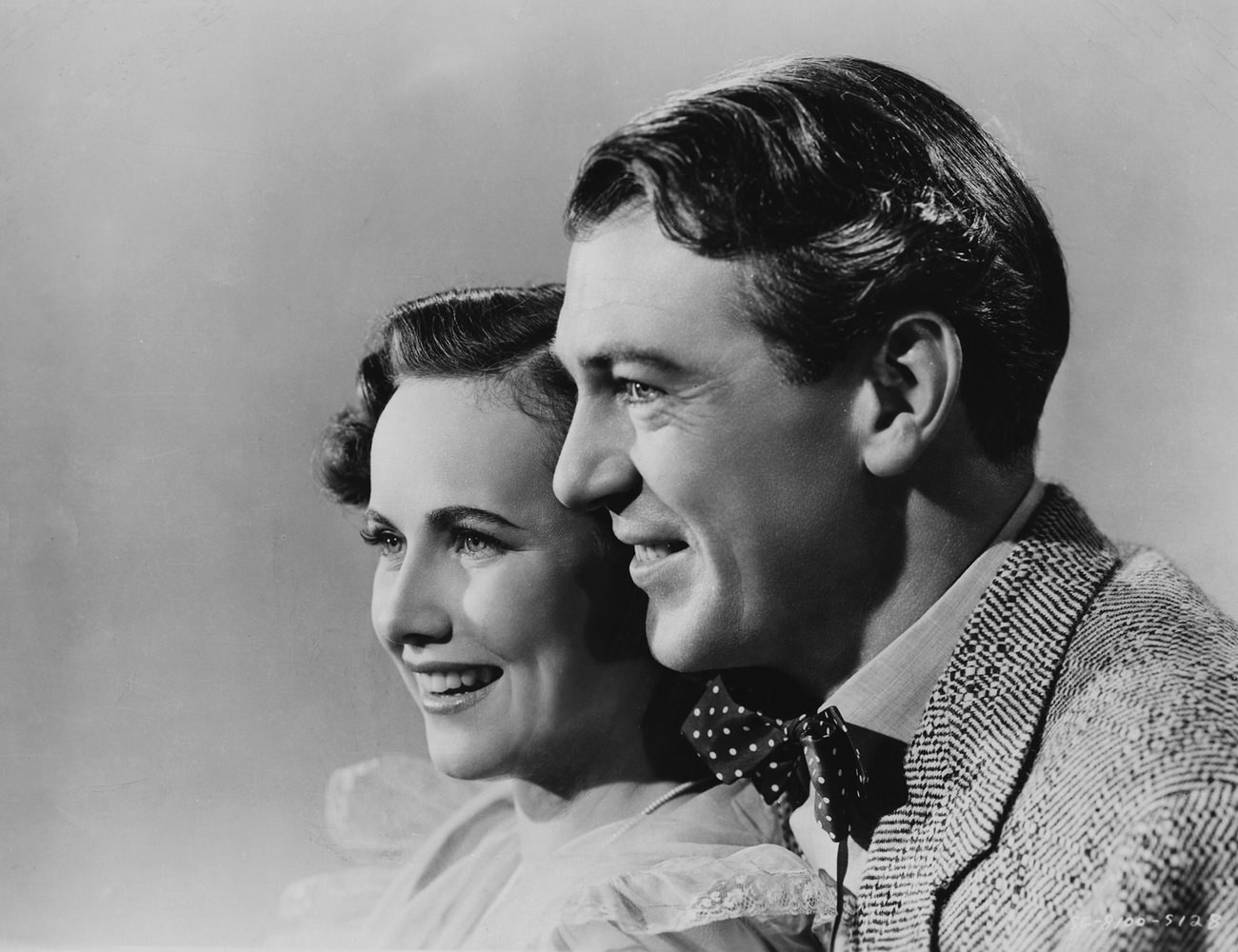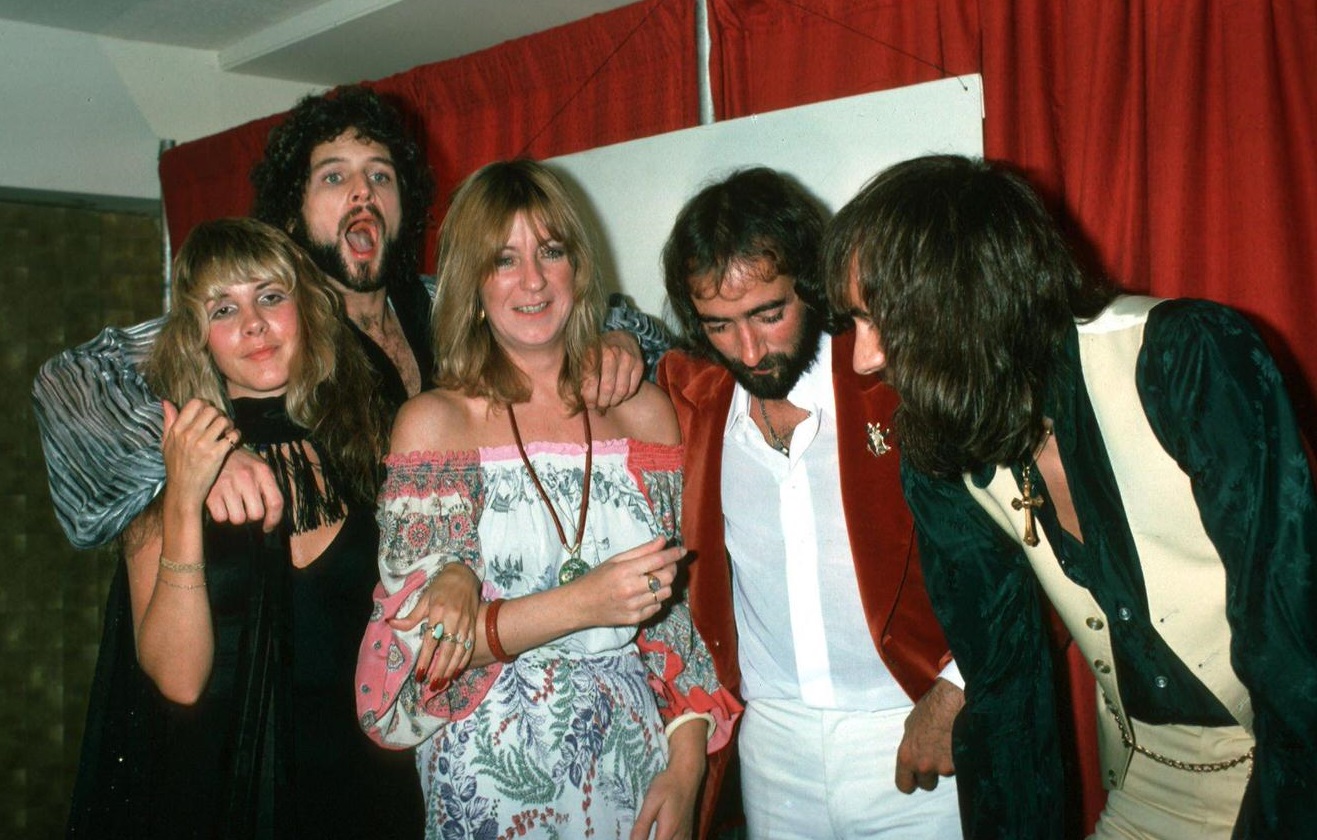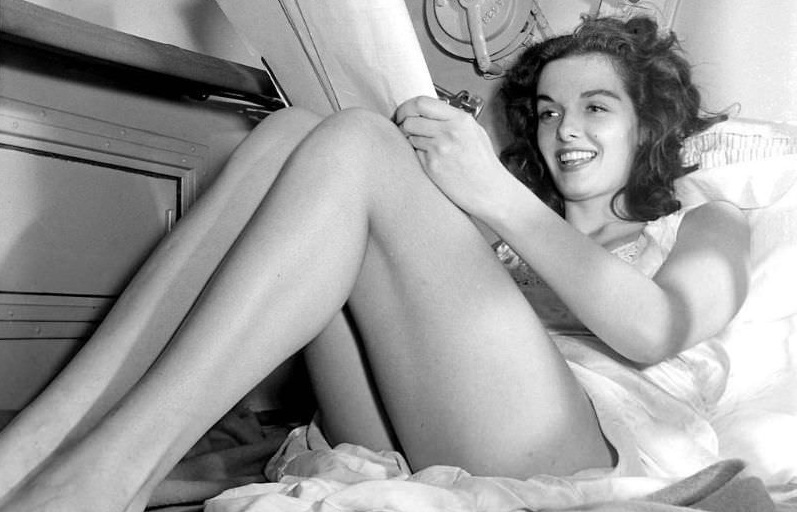“The Pride of the Yankees” is a biographical drama film released in 1942, directed by Sam Wood and starring Gary Cooper, Teresa Wright, and Walter Brennan. The movie tells the story of Lou Gehrig, one of the most famous and beloved baseball players of all time, who died tragically young from a degenerative disease that now bears his name.
The film opens with Gehrig (Gary Cooper) as a young boy, playing ball in the streets of New York City. We see him grow up, attending Columbia University and eventually being signed to play for the New York Yankees. The movie shows Gehrig’s rise to fame as a player, his love story with his wife, Eleanor (Teresa Wright), and his close friendship with his teammate, Babe Ruth (played by himself).
As Gehrig’s career reaches its peak, he begins to experience strange symptoms, such as weakness and loss of coordination. He goes to see a doctor and is diagnosed with ALS (amyotrophic lateral sclerosis), a rare and incurable disease that gradually paralyzes the body. Despite this devastating news, Gehrig remains determined to play, and he continues to take the field for as long as he can.
The film depicts Gehrig’s gradual decline, as he struggles to perform even basic tasks like tying his own shoes. Throughout it all, he maintains his grace and dignity, becoming a symbol of courage and perseverance in the face of adversity. His famous “luckiest man” speech, delivered at a tribute to him at Yankee Stadium on July 4, 1939, is one of the most iconic moments in sports history.
“The Pride of the Yankees” is a classic Hollywood biopic, full of sentimentality and melodrama. The film is notable for its strong performances, especially Gary Cooper’s portrayal of Gehrig, which earned him an Academy Award nomination for Best Actor. It also features appearances by many of Gehrig’s real-life Yankee teammates, including Babe Ruth, Bill Dickey, and Bob Meusel.
Here are some interesting facts about the movie
- Babe Ruth had a significant role in the film, playing himself. It was one of the few films he ever appeared in during his career.
- The movie’s famous “luckiest man” speech, which Gehrig delivered at Yankee Stadium, was not included in the original script. The screenwriters decided to include it after Gehrig actually gave the speech in real life.
- The film was released in 1942, just after the United States entered World War II. It was seen as a patriotic and inspiring movie that could lift the spirits of Americans during a difficult time.
- The film was a commercial and critical success, grossing over $3 million at the box office and receiving 11 Academy Award nominations, including Best Picture.
- Gary Cooper, who played Lou Gehrig, was not a natural athlete and had to train extensively to prepare for the role. He worked with professional baseball players to learn how to pitch, hit, and field like a pro.
- The movie was based on a book called “The Lou Gehrig Story” by Paul Gallico, which was published just a few months after Gehrig’s death in 1941.
- Although the film was a biopic, it took some liberties with Gehrig’s life and career, including fictionalizing some events and characters for dramatic effect.
- The movie’s score, composed by Leigh Harline, is considered one of the best film scores of the 1940s. It includes the memorable and emotional theme song, “The Pride of the Yankees”.
- The film’s success inspired a wave of other sports biopics in the following years, including “The Babe Ruth Story” and “The Jackie Robinson Story”.
- “The Pride of the Yankees” was added to the National Film Registry in 2004, recognizing it as a “culturally, historically, or aesthetically significant” film.


